- The Transcendent Grit of Caitlin Clark
- Whiteheart Retrospective – Part 12: Redemption
- Whiteheart Retrospective – Part 11: Inside
- A Lesson (Considering Ecclesiastes)
- The Happy Little Sapling


Rambling Ever On
Finding truth, beauty, and joy in life

Aladdin (2019) – 500 Words or Less Review
The 2019 reboot/reimagining/reinterpretation of Disney’s 1992 classic animated film is a better film than the original. I’ll go ahead and get that controversial statement out of the way from the onset. Aladdin (2019) is a better movie than Aladdin (1992).
Yeah, I said it. The story is better; the filmmakers added more dimensions to all the major players, giving us more reasons to connect with these people who are singing and dancing on the screen. The music is nearly as good, though it does suffer from a “been there, done that” vibe. The title character is far superior to his animated counterpart. Frankly, the animated Aladdin (the character) is boring. Mena Massoud brings charm, wit, and humor to the role in a way the animated character couldn’t or didn’t. And Jafar (Marwan Kenzari), though significantly altered in tone and style, is a more despicable and evil character in the live-action version.
Director Guy Ritchie includes some of his signature breakneck style, but he does a great job of maintaining a tone which fits nicely alongside the aesthetics of the original film. He simply updates and modernizes things.
The Genie in the room…
Yet, having said all that, the film’s legacy will hinge on one thing: The Genie. Will Smith gives it his best shot, injecting his personality and his particular skills into the character, but there is no topping perfection. The original film is not a great film but most of us remember it as one of the highpoints of Disney animation and it’s all because of Robin Williams’ iconic performance. I applaud Will Smith for what he does with the character, and he acquits himself admirably, but he never had a chance.
“Woke” Factor
There are very few negatives to discuss. I do think the progressive feminist storyline with Jasmine (Naomi Scott) was a bit heavy handed, but there are bigger offenders in this regard in the film world. The film is “woke” but not so woke as to turn off half the audience. I’m fine with giving Jasmine more agency and power, but they sacrifice authenticity and logic to do so. Not to mention, her big song is good but doesn’t really fit the style of the classic songs.
The new Aladdin is a solid film, a better film than the original. But without Robin Williams as the Genie, the film never quite reaches the highs of the original animated classic. Still, it’s a worthy adaptation and one I will revisit in the future.
- Recent Posts
- Whiteheart Retrospective – Part 12: Redemption - August 28, 2024
- Whiteheart Retrospective – Part 11: Inside - August 21, 2024
- The Happy Little Sapling - August 16, 2024
Share this:
- ← 1962, 1980s to the Present, and a Beautiful Psalm
- When My Best Wasn’t Enough →
Phill Lytle
Phill Lytle loves Jesus, his wife, his kids, his family, his friends, his church, J.R.R. Tolkien, C.S. Lewis, 80s rock, the Tennessee Titans, Brandon Sanderson books, Whiteheart, Band of Brothers, Thai food, the Nashville Predators, music, books, movies, TV, writing, pizza, vacation...
2 thoughts on “ Aladdin (2019) – 500 Words or Less Review ”
Will Smith was to the Genie as Emily Blunt was to Mary Poppins. They were excellent in their own right. But they both had such impossible standards to live up to. Still, I immensely enjoyed the Fresh Prince as the all-powerful Genie of the Lamp.
And I agree with your assessment except for one minor detail. I think the original Jafar was a perfectly terrifying villain and better than his live counterpart.
I’m not sure where I land on Jafar – which one is better. I like both. I really like the cartoon Jafar – love his voice and demeanor. Live-action Jafar is a very different character. I do think he is presented as less cartoonishly evil – which makes sense for a format.
Leave a Reply Cancel reply
Your email address will not be published. Required fields are marked *
This site uses Akismet to reduce spam. Learn how your comment data is processed .
Angel Reese and Caitlyn Clark COULD do for the WNBA what Magic and Bird did for the NBA. When Magic…
Good article, Gowdy. Gritty is a great way to describe her. And as far as her presence to the league…
As usual, you have combined meticulous research, broad sports knowledge, and excellent memory to do an analysis such as is…
This article was good then, and it' certainly good now.
We need more saplings for more commutes to be less terrible.
Press ESC to close
How to Write a Movie Review: A Step-by-Step Guide with Examples
- backlinkworks
- Writing Articles & Reviews
- October 3, 2023

Introduction
Watching movies is a popular pastime for many individuals. While some enjoy being entertained by the latest releases, others find satisfaction in analyzing and critiquing films. If you fall into the latter category, then writing a movie review can be a rewarding activity. Whether you aspire to become a professional film critic or simply want to share your opinion with others, this step-by-step guide will help you craft a compelling and engaging movie review.
Step 1: Watch the Movie
Before you can write a movie review, you need to watch the film attentively. Take notes while watching, paying attention to the plot, characters, cinematography, acting, and any other elements that stand out. Understanding the movie in its entirety is crucial to providing an informed perspective in your review.
Step 2: Gather Your Thoughts
After watching the film, take some time to gather your thoughts and reflect on your overall impressions. Did you enjoy the movie? What were its strengths and weaknesses? Consider the movie’s themes, messages, and intended audience. Jot down key points to use as the foundation of your review.
Step 3: Start with a Strong Introduction
The introduction sets the tone for your movie review. Begin with a captivating hook that grabs the reader’s attention and provides a brief overview of the film. Offer some context, such as the genre or director, and any interesting background information that adds value to the review. Make sure to state your overall opinion clearly and concisely.
Step 4: Analyze the Plot and Storyline
Provide a detailed analysis of the movie’s plot and storyline. Discuss the main narrative, subplots, and any twists or surprises. Evaluate the pacing, coherence, and depth of the story. Highlight any standout moments or memorable scenes that contribute to the overall narrative experience.
Step 5: Evaluate the Acting and Characters
An important aspect of any movie review is assessing the acting performances and the development of the characters. Discuss the actors’ portrayals, their chemistry, and whether they effectively brought their characters to life. Analyze the characters’ depth, growth, and believability. Give examples to support your claims.
Step 6: Critique the Cinematography and Visuals
The cinematography and visual elements greatly impact a movie’s overall appeal. Evaluate the camera angles, lighting, set design, costumes, and any special effects used. Explain how these choices contribute to the storytelling and enhance the viewer’s experience.
Step 7: Assess the Sound and Music
The sound design and music play a vital role in creating the right atmosphere for a film. Analyze the sound effects, soundtrack, and any background music utilized. Discuss how the audio elements complemented the visuals and enhanced the emotional impact of key scenes.
Step 8: Highlight the Strengths and Weaknesses
In this section, discuss the movie’s strengths and weaknesses. Offer constructive criticism where necessary, but also acknowledge the film’s positive aspects. Be specific and provide examples to support your claims, giving readers a well-rounded perspective of the overall quality of the movie.
Step 9: Conclusion
The conclusion should summarize your main points and provide a final assessment of the film. Reiterate your overall opinion and encourage readers to watch or avoid the movie based on your review. End with a thought-provoking statement or a call-to-action to engage your audience further.
Frequently Asked Questions (FAQs)
1. how long should a movie review be.
A movie review can vary in length, but a typical review ranges from 500 to 1000 words. However, if you feel the need to provide a more in-depth analysis, IT can extend beyond the usual word count.
2. Should I include spoilers in my review?
IT is best to avoid spoilers, as they can ruin the viewing experience for those who haven’t seen the film. If you must discuss specific plot details, clearly indicate spoiler warnings and use HTML tags to hide text, ensuring readers have the option to read or skip the spoilers.
3. How do I maintain objectivity in my review?
While a movie review reflects your personal opinion, try to maintain objectivity by offering balanced arguments and supporting your statements with evidence from the film. Acknowledge that different viewers may have different tastes and perspectives.
4. Is IT necessary to include a rating in my review?
Including a rating is not essential, but IT can provide a quick summary of your overall opinion. You can use a numerical scale, stars, or any other rating system you find suitable. Just ensure you explain the reasoning behind your rating within the body of the review.
5. How can I make my review stand out?
To make your review stand out, write in a clear and engaging style. Incorporate your unique voice and use captivating language to draw readers in. Including relevant screenshots from the movie or embedding a trailer can also enhance the overall appeal of your review.
writing a movie review provides an opportunity to express your thoughts and opinions about a film while helping others make informed decisions about their movie choices. By following this step-by-step guide, you can craft a well-written and insightful review that captures the essence of the movie. Remember to watch the film attentively, gather your thoughts, and provide a balanced assessment of its various elements. With practice, you’ll refine your skills as a movie reviewer and contribute to the world of film criticism.
Understanding the Different Pricing Models of Odoo
How to set up and manage multiple domains in wordpress.

Recent Posts
- Driving Organic Growth: How a Digital SEO Agency Can Drive Traffic to Your Website
- Mastering Local SEO for Web Agencies: Reaching Your Target Market
- The Ultimate Guide to Unlocking Powerful Backlinks for Your Website
- SEO vs. Paid Advertising: Finding the Right Balance for Your Web Marketing Strategy
- Discover the Secret Weapon for Local SEO Success: Local Link Building Services
Popular Posts

Unlocking the Secrets to Boosting Your Alexa Rank, Google Pagerank, and Domain Age – See How You Can Dominate the Web!

Shocking Secret Revealed: How Article PHP ID Can Transform Your Website!

Uncovering the Top Secret Tricks for Mastering SPIP PHP – You Won’t Believe What You’re Missing Out On!

The Ultimate Collection of Free Themes for Google Sites

10 Tips for Creating a Stunning WordPress Theme
Explore topics.
- Backlinks (2,425)
- Blog (2,744)
- Computers (5,318)
- Digital Marketing (7,741)
- Internet (6,340)
- Website (4,705)
- Wordpress (4,705)
- Writing Articles & Reviews (4,208)
- PRO Courses Guides New Tech Help Pro Expert Videos About wikiHow Pro Upgrade Sign In
- EDIT Edit this Article
- EXPLORE Tech Help Pro About Us Random Article Quizzes Request a New Article Community Dashboard This Or That Game Happiness Hub Popular Categories Arts and Entertainment Artwork Books Movies Computers and Electronics Computers Phone Skills Technology Hacks Health Men's Health Mental Health Women's Health Relationships Dating Love Relationship Issues Hobbies and Crafts Crafts Drawing Games Education & Communication Communication Skills Personal Development Studying Personal Care and Style Fashion Hair Care Personal Hygiene Youth Personal Care School Stuff Dating All Categories Arts and Entertainment Finance and Business Home and Garden Relationship Quizzes Cars & Other Vehicles Food and Entertaining Personal Care and Style Sports and Fitness Computers and Electronics Health Pets and Animals Travel Education & Communication Hobbies and Crafts Philosophy and Religion Work World Family Life Holidays and Traditions Relationships Youth
- Browse Articles
- Learn Something New
- Quizzes Hot
- Happiness Hub
- This Or That Game
- Train Your Brain
- Explore More
- Support wikiHow
- About wikiHow
- Log in / Sign up
- Arts and Entertainment
- Film Studies
How to Write a Movie Review
Last Updated: August 11, 2024 Fact Checked
This article was co-authored by Marissa Levis . Marissa Levis is an English Teacher in the Morris County Vocational School District. She previously worked as an English director at a tutoring center that caters to students in elementary and middle school. She is an expert in creating a curriculum that helps students advance their skills in secondary-level English, focusing on MLA formatting, reading comprehension, writing skills, editing and proofreading, literary analysis, standardized test preparation, and journalism topics. Marissa received her Master of Arts in Teaching from Fairleigh Dickinson University. There are 14 references cited in this article, which can be found at the bottom of the page. This article has been fact-checked, ensuring the accuracy of any cited facts and confirming the authority of its sources. This article has been viewed 5,660,429 times.
Whether a movie is a rotten tomato or a brilliant work of art, if people are watching it, it's worth critiquing. A decent movie review should entertain, persuade and inform, providing an original opinion without giving away too much of the plot. A great movie review can be a work of art in its own right. Read on to learn how to analyze a movie like a professional film critic, come up with an interesting thesis, and write a review as entertaining as your source material.
Sample Movie Reviews

Writing an Intro for a Movie Review

- Comparison to Relevant Event or Movie: "Every day, our leaders, politicians, and pundits call for "revenge"– against terrorist groups, against international rivals, against other political parties. But few of them understand the cold, destructive, and ultimately hollow thrill of revenge as well as the characters of Blue Ruin. "
- Review in a nutshell: "Despite a compelling lead performance by Tom Hanks and a great soundtrack, Forrest Gump never gets out of the shadow of its weak plot and questionable premise."
- Context or Background Information: " Boyhood might be the first movie made where knowing how it was produced–slowly, over 12 years, with the same actors–is just as crucial as the movie itself."

- Using stars, a score out of 10 or 100, or the simple thumbs-up and thumbs-down is a quick way to give your thoughts. You then write about why you chose that rating.
- Great Movie: ABC is the rare movie that succeeds on almost every level, where each character, scene, costume, and joke firing on all cylinders to make a film worth repeated viewings."
- Bad Movie: "It doesn't matter how much you enjoy kung-fu and karate films: with 47 Ronin, you're better off saving your money, your popcorn, and time."
- Okay Movie: "I loved the wildly uneven Interstellar far more than I should have, but that doesn't mean it is perfect. Ultimately, the utter awe and spectacle of space swept me through the admittedly heavy-handed plotting and dialogue."

- Great: "Michael B. Jordan and Octavia Spencer's chemistry would carry Fruitvale Station even if the script wasn't as good. The mid-movie prison scene in particular, where the camera never leaves their faces, shows how much they can convey with nothing but their eyelids, the flashing tension of neck muscles, and a barely cracking voice."
- Bad: " Jurassic World's biggest flaw, a complete lack of relatable female characters, is only further underscored by a laughably unrealistic shot of our heroine running away from a dinosaur – in heels."
- Okay: "At the end of the day, Snowpiercer can't decide what kind of movie it wants to be. The attention to detail in fight scenes, where every weapon, lightbulb, and slick patch of ground is accounted for, doesn't translate to an ending that seems powerful but ultimately says little of substance."

- Does the film reflect on a current event or contemporary issue? It could be the director's way of engaging in a bigger conversation. Look for ways to relate the content of the film to the "real" world.
- Does the film seem to have a message, or does it attempt to elicit a specific response or emotion from the audience? You could discuss whether or not it achieves its own goals.
- Does the film connect with you on a personal level? You could write a review stemming from your own feelings and weave in some personal stories to make it interesting for your readers.
Composing Your Review

- When you name characters in your plot summary, list the actors' names directly afterward in parenthesis.
- Find a place to mention the director's name and the full movie title.
- If you feel you must discuss information that might "spoil" things for readers, warn them first.

- Cinematography: " Her is a world drenched in color, using bright, soft reds and oranges alongside calming whites and grays that both build, and slowly strip away, the feelings of love between the protagonists. Every frame feels like a painting worth sitting in."
- Tone: "Despite the insane loneliness and high stakes of being stuck alone on Mars, The Martian's witty script keeps humor and excitement alive in every scene. Space may be dangerous and scary, but the joy of scientific discovery is intoxicating."
- Music and Sound: " No Country For Old Men's bold decision to skip music entirely pays off in spades. The eerie silence of the desert, punctuated by the brief spells of violent, up-close-and-personal sound effects of hunter and hunted, keeps you constantly on the edge of your seat."
- Acting: "While he's fantastic whenever he's on the move, using his cool stoicism to counteract the rampaging bus, Keanu Reeves can't quite match his costar in the quiet moments of Speed, which falter under his expressionless gaze."

- Keep your writing clear and easy to understand. Don't use too much technical filmmaking jargon, and make your language crisp and accessible.
- Present both the facts and your opinion. For example, you might state something such as, "The Baroque background music was a jarring contrast to the 20th century setting." This is a lot more informative then simply saying, "The music was a strange choice for the movie."

- Great: "In the end, even the characters of Blue Ruin know how pointless their feud is. But revenge, much like every taut minute of this thriller, is far too addictive to give up until the bitter end.""
- Bad: "Much like the oft-mentioned "box of chocolates", Forest Gump has a couple of good little morsels. But most of the scenes, too sweet by half, should have been in the trash long before this movie was put out."
- Okay: "Without the novel, even revolutionary concept, Boyhood may not be a great movie. It might not even be "good.” But the power the film finds in the beauty of passing time and little, inconsequential moments – moments that could only be captured over 12 years of shooting – make Linklater's latest an essential film for anyone interested in the art of film."
Polishing Your Piece

- Ask yourself whether your review stayed true to your thesis. Did your conclusion tie back in with the initial ideas you proposed?
- Decide whether your review contains enough details about the movie. You may need to go back and add more description here and there to give readers a better sense of what the movie's about.
- Decide whether your review is interesting enough as a stand-alone piece of writing. Did you contribute something original to this discussion? What will readers gain from reading your review that they couldn't from simply watching the movie?

Studying Your Source Material

- The title of the film, and the year it came out.
- The director's name.
- The names of the lead actors.

- Make a note every time something sticks out to you, whether it's good or bad. This could be costuming, makeup, set design, music, etc. Think about how this detail relates to the rest of the movie and what it means in the context of your review.
- Take note of patterns you begin to notice as the movie unfolds.
- Use the pause button frequently so you make sure not to miss anything, and rewind as necessary.

- Direction: Consider the director and how he or she choose to portray/explain the events in the story. If the movie was slow, or didn't include things you thought were necessary, you can attribute this to the director. If you've seen other movies directed by the same person, compare them and determine which you like the most.
- Cinematography: What techniques were used to film the movie? What setting and background elements helped to create a certain tone?
- Writing: Evaluate the script, including dialogue and characterization. Did you feel like the plot was inventive and unpredictable or boring and weak? Did the characters' words seem credible to you?
- Editing: Was the movie choppy or did it flow smoothly from scene to scene? Did they incorporate a montage to help build the story? And was this obstructive to the narrative or did it help it? Did they use long cuts to help accentuate an actor's acting ability or many reaction shots to show a group's reaction to an event or dialogue? If visual effects were used were the plates well-chosen and were the composited effects part of a seamless experience? (Whether the effects looked realistic or not is not the jurisdiction of an editor, however, they do choose the footage to be sent off to the compositors, so this could still affect the film.)
- Costume design: Did the clothing choices fit the style of the movie? Did they contribute to the overall tone, rather than digressing from it?
- Set design: Consider how the setting of the film influenced its other elements. Did it add or subtract from the experience for you? If the movie was filmed in a real place, was this location well-chosen?
- Score or soundtrack: Did it work with the scenes? Was it over/under-used? Was it suspenseful? Amusing? Irritating? A soundtrack can make or break a movie, especially if the songs have a particular message or meaning to them.

Expert Q&A

- If you don't like the movie, don't be abusive and mean. If possible, avoid watching the movies that you would surely hate. Thanks Helpful 0 Not Helpful 0
- Understand that just because the movie isn't to your taste, that doesn't mean you should give it a bad review. A good reviewer helps people find movie's they will like. Since you don't have the same taste in movies as everyone else, you need to be able to tell people if they will enjoy the movie, even if you didn't. Thanks Helpful 0 Not Helpful 0
- Structure is very important; try categorizing the different parts of the film and commenting on each of those individually. Deciding how good each thing is will help you come to a more accurate conclusion. For example, things like acting, special effects, cinematography, think about how good each of those are. Thanks Helpful 0 Not Helpful 0

You Might Also Like

Expert Interview

Thanks for reading our article! If you’d like to learn more about writing, check out our in-depth interview with Marissa Levis .
- ↑ https://owl.purdue.edu/owl/subject_specific_writing/writing_in_literature/writing_about_film/terminology_and_starting_prompts.html
- ↑ https://www.spiritofbaraka.com/how-write-a-movie-review
- ↑ https://www.nyfa.edu/student-resources/9-tips-for-writing-a-film-review/
- ↑ https://en.oxforddictionaries.com/writing-help/top-tips-for-writing-a-review
- ↑ https://writingcenter.unc.edu/tips-and-tools/summary-using-it-wisely/
- ↑ https://twp.duke.edu/sites/twp.duke.edu/files/file-attachments/film-review-1.original.pdf
- ↑ https://www.dailywritingtips.com/7-tips-for-writing-a-film-review/
- ↑ https://owl.purdue.edu/owl/subject_specific_writing/writing_in_literature/writing_about_film/film_writing_sample_analysis.html
- ↑ https://learning.hccs.edu/faculty/onnyx.bei/dual-credit/movie-review-writing-guide
- ↑ https://writingcenter.unc.edu/tips-and-tools/conclusions/
- ↑ https://www.grammarly.com/blog/how-to-write-a-movie-review/
- ↑ https://gustavus.edu/writingcenter/handoutdocs/editing_proofreading.php
- ↑ https://writingcenter.unc.edu/tips-and-tools/editing-and-proofreading/
- ↑ https://edusson.com/blog/how-to-write-movie-review
About This Article

To write a movie review, start with a compelling fact or opinion to hook your readers, like "Despite a great performance by Tom Hanks, Forrest Gump never overcomes its weak plot." Then, elaborate on your opinion of the movie right off the bat so readers know where you stand. Once your opinion is clear, provide examples from the movie that prove your point, like specific scenes, dialogue, songs, or camera shots. To learn how to study a film closely before you write a review, scroll down! Did this summary help you? Yes No
- Send fan mail to authors
Reader Success Stories
Did this article help you?

Breanna Lukes
Oct 17, 2018
Mar 31, 2021

Featured Articles

Trending Articles

Watch Articles

- Terms of Use
- Privacy Policy
- Do Not Sell or Share My Info
- Not Selling Info
Don’t miss out! Sign up for
wikiHow’s newsletter
Verify originality of an essay
Get ideas for your paper
Cite sources with ease
How to Write a Movie Review: Tips for Aspiring Critics
Updated 02 Sep 2024

If you wish to know how to write a movie review, then you are on the right page. A movie review forms part of essays college students writes. While many cinema-loving students find it interesting, others don’t. A film review does not mean writing what happened in a film; instead, it involves doing a critical assessment of the same as an art form that reflects cultural and societal values. Also, you can proof your paper instantly with the Edubirdie plagiarism tool .
What is a movie review? A movie review is a detailed analysis of a film or a documentary. It involves analysis, research, and reporting the writer’s views in a structured way. The writer assumes a position of educating readers whether they have watched the film or not. In fact, many people read movie reviews to decide whether they want to see a film or not.
Film criticism, as a historical and evolving practice, shapes the discourse around cinema. Notable critics and the transition of film reviews from traditional media to various platforms highlight the importance of analysis and personal insights in creating effective movie reviews.
A film review tests students’ critical thinking and reporting skills. It also examines their dexterity in writing in a logical, concise, lucid, and creative manner. This post shall teach you to craft the best film review in your class without being redundant in writing , and you can find many interesting tips on how to write a movie review for college and movie reviews examples. Writing a movie review requires critical analysis and attention to detail, and if you need assistance, a literature review writing service can help you craft a comprehensive and insightful review.
How to Write a Movie Review Like a Professional Critic
Watch the movie:.
Before you can review any film, you must watch it. You cannot review a motion picture you have not watched. Therefore, for success watch the film at least twice. Note: do not watch it like you’re a regular moviegoer or movie enthusiast. Be focused and conscious through the film. Take notes if necessary.
You will need to take notes hence have a notebook and pen handy. Record all events and characters (major and minor). Try to be meticulous do not overlook anything.
Research the movie
Watching the film should give you the overview and feel of the movie. With that, it should be easy and exciting to research the movie. The research augments what you have watched in the movie. In your research, you should find out who the filmmaker is, what prompted the making of the movie, the characterization, historical events the lead to the film, location, plot and so on.
If you are aware of the details behind the movie, the movie will be more understandable and engaging. Note also that if you do not understand the movie you cannot move to the next step which involves analysis. Try not to proceed to the next step unless you vividly understand the movie. If it entails watching it again until you fully get it, do it. The following should form part of your findings regarding the film:
- Title and year
- Names of the lead actors
- Name of the director
- Title of the book (if based on a book)
Draft the review outline
Draft an outline with which you will write the review. The overview will help you organize your review concisely and logically. The outline is more like the skeletal frame on which the whole study will stand. A good draft will yield a perfect report, and the reverse is also true.
An outline enhances the quality of the film review, and it is essential you have your outline before you start writing. A sample outline looks like this:
1. Introduction
- Date released
- Background info
2. Summary of the story
Main characters and their significance in the plot
3. Analysis of the plot elements
4. creative elements, 5. opinions (add examples to back up your claims).
- Camera techniques
- Special effects and so on
6. Conclusion
Analyze the movie.
After fully understanding the movie, you can start its analysis. Critically evaluate the film from the beginning to the end, noting every detail. While analyzing, if you observed any confusing part, re-watch to grasp the idea portrayed there fully. After you fully understand it, then you are set to write the movie review. To write a decent analysis, you need to know how to write a film critique. Observing different camera angles can enhance the viewer's understanding and engagement with the film.
Augment Your Review with Examples
While watching the movie, your observations should be supported with examples, i.e., mention scenes the event took place. If the plot is faulty, mention it but state examples to support that claim. You can also mention poorly developed characters evident in the movie and others. Everything you observed in the film must be noted.
Examples of notables include locations, faulty or beautiful dialogues, quotes that appeal to you, poorly made speeches, bloopers, editing errors and so on. Do take note that it is not enough to make general statements about how awesome or awful the movie is, you must support your claim with evidence in the film. That is why it is called a movie review and not opinion sampling interview about the movie.
Comment on the originality of the movie
Finally mention the uniqueness of the film which you noticed in the one you’ve watched. But even if the movie happens to be a standard feature with conventional approaches, you can still mention this as well. A regular film is still a film.
Write Your Review
With all the fact gathered above, you can now use the outline to write your film review. Make every part easy and enjoyable to read. Importantly, make the introduction engaging and captivating. You should go for a grand opening that will grab the attention of any reader. A good opening keeps the reader on the article.
Let us assume your introduction is watertight and engaging; any sloppy body will lose your reader. Hence, make the body informative and engaging. The review aims to reveal as much information as possible. Therefore, do your best to give all the details in the film to the reader. Engage your analytic mind. Analyzing technical aspects such as cinematography, lighting, and sound quality is crucial for a comprehensive review.
Another essential part of the review is the closing or conclusion. Here you give your view about the movie with evidence revealed in the body. Connect the conclusion with the introduction creatively.
Edit Your Final Draft
After writing your first version of the review, you can re-write the final one after editing. Also, you should check the final draft for spelling errors, grammar mistakes, and so on. Ensure sentences connects logically to each other and watch the format used. Make a final comparison of your work with the requirement by your professor or lecturer.
With the help of free word counter check the number of words required and cut them if more than needed but if not, add relevant information to make them up. Do not add irrelevant details for the sake of space. Ensure your final submitted draft is well edited, polished, plagiarism-free and presented in the recommended format or style.
Need more writing assistance?
Connect with our top writers and receive a movie review sample crafted to your needs.
Tips to Follow While Writing a Movie Review: Personal Opinion
Since a movie review essay requires dedication and time investment, you might want to know the special tips to get you through the assignment seamlessly. Do recall that perfect conclusion of this assignment will add to your grades, hence the need to take it seriously. If you wish to know How to write a movie critique easily, then this section will tell you that.
The useful tips you should consider are as follows:
- Watch the film at least two times
- If you have seen it before, make sure you re-watch it for the assignment.
- Watch the movie not as a moviegoer but with an analytic mindset of a professional reviewer
- Pay attention to details. Remember, your personal opinion is crucial as it provides a subjective interpretation of the film's events.
- Take notes as you watch
- Don’t be in a rush - take your time, but be aware of the deadline
- Do not write out of the contest of your coursework. Tailor your review to the target audience and their expectations.
- Follow the requirements of your professor
- Use an outline to organize your work
- Start working on the body of your film review first and the introduction next
- Write an engaging introduction and a powerful closing.
- Never forget to edit your work.
Read also: How to write an editorial Essay: Useful Tips for Those Who Want To Perfect Their Skill
Elements of a Professional Movie Review: Plot Summary
One similar thing about these reviews is that they all should contain the same elements regardless of the genre. The elements of a movie review provide the structure on which you will base the analysis. A proper movie review format comprises the following components:
It’s not enough that the movie title appears on the headline, it must appear in the review too. Mention it in the text and feature it in the introductory paragraph; there is no harm in doing that. A movie review evaluates a particular film and helps readers decide whether to watch it.
The Storyline (Plot)
The motion picture review itself refers to the summary of the movie. Present it in a concise way for people who are yet to watch it. When you are beginning to write a movie review, never have the mindset that your professor or any would-be reader has watched the movie. Therefore, never leave important points or events out. Your job is to elucidate the movie clearly to the reader: mention the faults observed, and the filmmaker’s brilliant points or downers. Including a plot summary provides a brief overview of the film's plot, which is essential for a comprehensive review.
What is a movie analysis without the filmmaker? Your review must feature him or her. Therefore, dedicate a paragraph to him, write about the kind of personality he or she is. Reveal the filmmaker’s political stance (if relevant), background, the controversial life of the person (if he is one), etc. You can also use the opportunity to talk about other movies the director has worked on before now, and then connect it with the one under review.
Significance to your class
Relate the content of the film or documentary to your course topic. Check its importance for historical accuracy. If the film is for history class, discuss any over-dramatization noticed in the act. However, if the film was based on a book you have reviewed in one of your classes, mention the connection between the book and the movie: state variances, comparisons and other elements present in the book that are missing in the film.
Creative elements
Creative elements make or mar films, that is why filmmakers go out of their ways to add them to their movies. It is your job to state how these elements work in the plot and the film in general. For instance, comment on the effectiveness of the sound effect in enriching the viewing experience of the movie? Talk about the lighting, costume, makeup, colors, camera, etc.
The cast carry the movie; without them, there is no movie. Your review should reveal if they acted well or poorly. State if their acting was realistic or not. Do not fail to mention if they have the skills and charisma to portray the role they played. You can also state if they were the right actors to play the role they did. Furthermore, you can suggest actors who could have played certain roles better than those in the film.
Get AI-free papers in just 3 hours
Receive high-quality, original papers, free from AI-generated content.
Common Movie Review Mistakes You Should Avoid
After your arduous work of submitting your film report, you might be shocked to learn that your hard work received a query. You may wish to know why, well it could be because you commit any of the following common mistakes:
- Focusing on the wrong thing: Do not shift your focus. You might want to connect the film with some historical events, however, do not give unnecessary analysis or details that are not relevant to the movie under review. For instance, avoid giving the history of motion picture unless the film is about the development of the industry. Try and be focused.
- Alienating yourself from the review: You are the one writing the review, therefore, do not insert yourself in it. The review already has your name and signature on it so adding the possessive pronoun “I” should be discarded. The mistake most student make is writing in the first person, e.g., “I like the movie a lot, I admired the lead character,” and so on. Since the review exposes your understanding, opinions, likes, and dislikes, then it is unnecessary to insert yourself in it.
- Not doing your research: As said earlier, watching the movie is one side of the coin, you need to check out other details. Researching the film is highly critical because it would expound to you all the nitty-gritty details, not in the motion picture.
- Lack of evidence: In writing about a motion picture, you must substantiate any opinion or claim. You need to state your reason for liking, disliking, etc. of the film.
- Avoid irrelevant discussion: Do not start explaining issues not related directly with the motion picture you are analyzing.
- Unstructured review: Never write a movie review without structure, it would reveal you as an unorganized student. Hence structure your review properly by first creating the outline and organize your work. A good movie review should include a structured summary, critical analysis, and a persuasive tone to guide readers in their decision to watch the film or not.
- Avoid Generalization and be Precise: Never generalize ideas when you write a movie review. Avoid general statements like “a fantastic movie,” “beautiful set,” “excellent acting,” and such like. Support any comment you make with evidence from the film.
- Review lacking substance and analysis: Avoid writing a motion picture review that does not have substance or analysis. A review is a piece of educational literature, therefore, add intelligent analysis to it.
Movie Review Example from Top Writers
Here are a few examples of movie review topics to steer you in the right direction:
- Avatar Movie Review
- Beautiful Woman Movie Review
- Black Panther and its Global Significance
- In Pursuit of Happiness: Lessons to Learn
- iRobot: The Depiction of AI in the Future
- Matrix Movie Review
- Roots and Its Implication on the Life of the Black Men
- The Good, the Bad, the Ugly Movie Review
- The Last Holiday Movie Review and the Lesson of Living Life Too Cautiously
- Titanic Movie Review
Quick & Reliable Writing Help
As you can see, a movie review essay is an interesting paper to write. Recall that the whole point of a movie review is to inform the reader about the film and the ideas behind it. Also, it reflects your unbiased and objective view about the film. Adopt all our tips, and you shall submit a professional-looking report.
However, if you don't care about movies or still have issues coming to terms with all we have explained above, then contact us for help. At EduBirdie, our movie and book review writing service are poised to help with your assignment and guarantee a high-quality review at an affordable price. With us, you shall learn how to do a movie review that will wow any professor.
Was this helpful?
Thanks for your feedback.

Written by Elizabeth Miller
Seasoned academic writer, nurturing students' writing skills. Expert in citation and plagiarism. Contributing to EduBirdie since 2019. Aspiring author and dedicated volunteer. You will never have to worry about plagiarism as I write essays 100% from scratch. Vast experience in English, History, Ethics, and more.
Related Blog Posts
Best capstone project ideas for students across subjects.
The most challenging aspect of crafting a top-tier capstone project is often getting started. The initial hurdle involves selecting a strong, impac...
Learn how to write an annotated bibliography to achieve the best grades!
Writing an annotated bibliography is one of academic work's most challenging yet essential parts. This helpful EduBirdie guide will tell you all ab...
How to write a survey paper: structure and tips for effective writing
All students dream of an easier way to learn a subject. Writing a survey paper example can effectively synthesize and consolidate information, help...
Join our 150K of happy users
- Get original papers written according to your instructions
- Save time for what matters most
Lara’s Blog
Just another university of brighton blog network site.

500 word film review
Film review/Auetuership – US (2019) by auteur director Jordan Peele (Spoilers)
Jordan Peele is a well known American actor, comedian, writer, director and producer. ‘Us’ is Jordan Peele’s latest horror/thriller. The film follows the Wilson family, being attacked by their evil doppelganger counterparts called “The Tethered”. Jordan Peele is best known for his previous, extremely successful, multiple award-winning, horror film “Get Out”. “Get Out” won Oscars, Golden Globes, Baftas plus loads more and was labelled one of the most successful horror films of our time. Having already showcased his incredible talent and ability to produce such high quality [horror] films with “Get Out” it set the standards for this film (Us) extremely high. Which I personally don’t think was met and was a little bit disappointed.
I believe ‘Get out’ and ‘Us’ is what established Jordan Peele to be an auteur director. Not just because he makes horror movies but also because he also has his own personal style by casting majority-black casts and incorporating themes of racism throughout. This creates a wonderful deeper meaning to his filmmaking process rather than just making a horror film to scare audiences and partly why he is so succesful.
I believe because of the incredibly high standards Jordan Peele has shown off previously, that it mistakenly leads critics and everyday audiences to watch ‘Us’ assuming it is going to be at the same standard, rather than watching it as a stand-alone film with an unbiased view. I believe that if ‘Us’ was directed by a new, unknown director and not Jordan Peele, audiences would have given it a lot more criticism and it wouldn’t have been nearly as popular or highly-rated.
To talk about the film alone, from an unbiased view, I would say that whilst the first half of the film is continuously scary, intriguing and eerie it was very dialogue-heavy and the pacing is very slow. There is almost no action or build up until an hour into the film. I felt like I was just anticipating for a major event to happen rather than it having any real meaning.
From the outset, we are merely introduced into the Wilson’s family’s life, only looking into their lives and not into any deeper development of the characters themselves as you would normally expect at the beginning of most films. Without this it makes me, as a viewer, not feel a connection with or to be rooting for the family as much I would expect, especially in a ‘good’ v ‘bad’ storyline. This just made the beginning feel very slow-paced and boring for me.
During the action scenes, the families actions seemed so unbelievably unrealistic, pulling me, as the audience, out of being immersed in the film and thinking how stupid they are being. For example, the dad goes to the boat with a single flare gun as if its somehow going to help anybody out or when the daughter is scared for her life, running past a row of houses doesn’t even call for help or go into any of the houses or when the doppelganger father was able to get in the boat, immediately start it and drive, how does the doppelganger that lived underground his entire life know how to ride a boat or even start immediately without looking or questioning it. Once I had been pulled out of the world of the film and no longer immersed in it, I was realising how laughable the story was. My overall expression during the horror film was confused rather than scared.
I was disappointed in the second half as felt the film was leading up to a major event but instead was left with so many plot holes and ambiguity that you don’t get any satisfaction or conclusion. And with a twist, you could’ve almost predicted before watching the film made me realise that this isn’t a very scary movie and makes you not want to watch it again as it would be boring watching it knowing the twist whereas. I normally find watching movies again, once I find out the twist, really interesting. Some movies are even are more interesting watching it the second time knowing the twist. But in my opinion, the twist that (spoilers) the mum – Adeline was actually the doppelganger all along, doesn’t actually change anything. It doesn’t make anything scarier or more interesting, so that was a bit of a letdown, especially as the whole movie had been leading up to it.
Of course, when we watch films. we watch them with a pinch of salt, allowing and ignoring the unrealistic technicalities of what makes them unrealistic (i.e. unjustified passing of time/change of locations/plot holes/major coincidences etc.) because we know the film is for entertainment and not to convey real life. However, in “Us” the plot holes and confusion for the viewer are far too large and far too unrealistic to even overlook. Whilst some ambiguity is normally great and even recommended in most cases, this film leaves so much ambiguity by the end that it is almost laughable.
In terms of the specific plot holes, the most obvious ones being the illogical almost ridiculous idea that there is one doppelganger for every person in the world and they live underground without anyone knowing about them.
They mentioned tunnels as if there’s enough tunnel space to for 300 million doppelgangers underground. Even if there was, who made all these tunnels? and without anyone from the real world noticing? Plus obvious things like how do they eat? get water? where do they sleep? or go to the toilet? where do they get the exact same clothes as their counterpart wears every day? They are seen wearing the exact same clothing as the real-life counterparts like a Micheal Jackson thriller top – where does a doppelganger get this t-shirt? and the same hair clips? and hairstyle? How do they even know what their counterpart is doing or what they look like? It is just not possible if they’re living underground their whole life. How do they keep the same bodyweight as their counterparts? even things like when do they shave? or cut their hair to always look exactly like their counterpart? How did they come up with this plan to take over the real world when they can’t even physically talk or communicate with each other?, even if they could talk to each other, how would they let every single one of the 300 million doppelgangers know about this plan? all of this with no one in charge of them?. Where did they get 300 million red uniform jumpsuits from? and 300 million of the iconic scissors from? and a right-handed leather glove each? Where did the doppelgangers even come from? Who looks after the baby doppelgangers? Do they reproduce and give birth in these tunnels? How did they get up to the normal world? Is there millions of hatches on the ground to get from the underground tunnels to the real world? if so surely they would have been seen coming to and from these hatches? In the flashback scene of the doppelganger Adeline Wilson kidnapping the real version of herself, how did she take her to the tethered tunnels? Was this through an underground door/hatch? if so, no-one at the carnival saw her dragging a body down a hatch underground? and even so, the carnival is on the beach, so this is then suggesting the underground tunnels are also under the ocean too? and this entire kidnapping scene happening in the time the dad plays a single game of whack-a-mole at the carnival without noticing his daughter has disappeared, been kidnapped and replaced again?
The rabbits underground suggest their only food source is these rabbits, which means someone must be there to kill (or even cook) the rabbits? which means they’re not doing exactly what their real-life counterpart is doing? even so, where do the rabbits come from, enough rabbits to feed 300 million people every day? Who is feeding the rabbits? or breeding them? or looking after them? and with all that said, even if their only food source was rabbit, that would easily, quickly lead to malnutrition!
And then ‘The tethered’ also mention they have been around for Generations which means pre-1900’s, this brings even more questions. Where do the dead bodies of ‘the tethered’ go when they die, or do they die? if the do die, do they die of the same cause their counterpart dies of? if so, how is that possible? i.e. if they’re counterpart got run over, what do they die of?
I am not saying it is a bad film, from a filmmaking perspective; Jordan Peele has delivered a well-directed, well shot (for the most part) and well ???? film and the performance of all the actors especially “Lupita Nyong'” has to be acknowledged as oscar-worthy. Acting as both the doppelganger and her real self. And even though it is a very non-scary horror film, it at least does not rely entirely on Jumpscares or dramatically gory scenes to try and scare the audience which typical horror movies do.
Many people try and find a deep meaning within the chaos of this film but it is pointless because you can find a deep meaning in literally anything if you try to and doesn’t mean anything.
In short, the film is a Jordan Peele original, it has some great acting, it is thought-provoking and admittedly creates huge discussion afterwards (even if its due to confusion, but each viewers interpretation is different, which is extremely interesting and one of my favourite things about films). I would recommend watching ‘Us’ to anyone who hasn’t seen it yet, the impressive acting performances alone is worth watching but at the same time, if you don’t want to waste 2 hours of your life, i would say that the 2-minute trailer is almost better than the film itself and saves you 2 hours of your life.

Leave a Reply Cancel reply
Your email address will not be published. Required fields are marked *
Save my name, email, and website in this browser for the next time I comment.
We use cookies to personalise content, to provide social media features and to analyse our traffic. Read our detailed cookie policy
- 1-800-611-FILM
How to Write a Movie Review: 10 Essential Tips
As long as there have been films, there have been film critics. Starting with the early days of cinema, where reviews appeared in newspapers and magazines as brief, descriptive pieces, as filmmaking evolved as an art form, so did the role of the critic. James Agee, André Bazin, and Pauline Kael shaped the discourse around cinema, and today, famous film critics like the iconic Roger Ebert , The New York Times’s A.O. Scott , and The New York Times’s Manohla Dargis continue to leave an indelible mark on the world of cinema.
With the rise of the internet, film criticism now encompasses a wide range of voices and perspectives from around the globe. Sites like Letterboxd make it possible for anyone to write short-form reviews on film. Even stars like The Bear’s Ayo Edebiri have accounts and share opinions on the latest box-office hits.
How to Write a Movie Review
Today, contemporary YouTube and TikTok critics such as Red Letter Media , deepfocuslens , and DoMo Draper don’t just write film reviews, they shoot videos and skits. Through their creative formats, they offer refreshing and unique perspectives while building communities of diehard film and television enthusiasts. Whether you choose to write reviews for your own blog, other websites, or social media channels, by learning how to write a movie review, any aspiring filmmaker can start to watch films intentionally.
@domodraperr Replying to @xsindeviltriggerx I’ll get right on that, Sir!🫡 #comments #movies #film #satire #fyp #mulan #disney ♬ I’ll Make a Man Out of You (feat. Black Gryph0n) – Cover – Samuel Kim
TikTok film critic “DoMo Draper” provides commentary on new and old films, often calling out racism, social injustice, misogyny, and prejudice.
While there’s no perfect approach to writing a review, there are best practices that every aspiring reviewer should consider.
Here are ten tips on writing a compelling piece.
1. Watch the film at least once.
For new reviewers, it’s impossible to capture everything after one viewing. Watching the film first, then watching to take notes, is an easy way to improve the quality of your final review. This will also make it easy to recall in-the-moment thoughts and reactions.
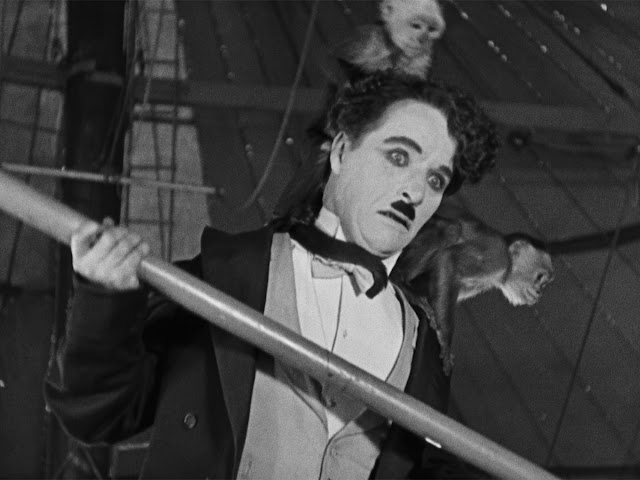
Take a review by Christian Blauvelt of Charlie Chaplin’s silent film The Circus , for example. Since the film does not have sound, properly critiquing the film requires close attention. Viewers have to pay attention to the various nuances in Chaplin’s performance, follow the story, and take in the cinematography. Regarding The Circus , Blauvelt writes, “The film lacks a conventional plot, but is rather a pearl necklace of strung-together episodes. ” The statement isn’t a criticism, but a keen observation likely gleaned from more than one viewing.
So while every film reviewer has their own approach, many choose to watch a film more than once to deliver the best possible review. Image The Criterion Collection.
2. Express your opinions and support your criticism.
Professional reviewers do not shy away from sharing whether they thought a movie was good, bad, or indifferent. In a review for the film Mother!, reviewer Candice Frederick describes the film as “uncomfortable,” and “controversial,” helping viewers understand the tone of the movie. While Frederick seemed to enjoy the film, her honesty about how it would make audiences feel was vital in writing the review.
Be sure to back up these thoughts with specifics–a disappointing performance, beautiful cinematography, difficult material that leaves you thinking, and so on. Professional reviewers should express why and how they came to their criticism.
3. Consider your audience.
Are you writing for a fan site or a news outlet? Who will read your pieces, and what are their interests? Knowing who your readers are and where the review will be published can help you decide what elements of the movie to highlight. For example, take these two very different reviews for the film ‘Synecdoche, New York’.
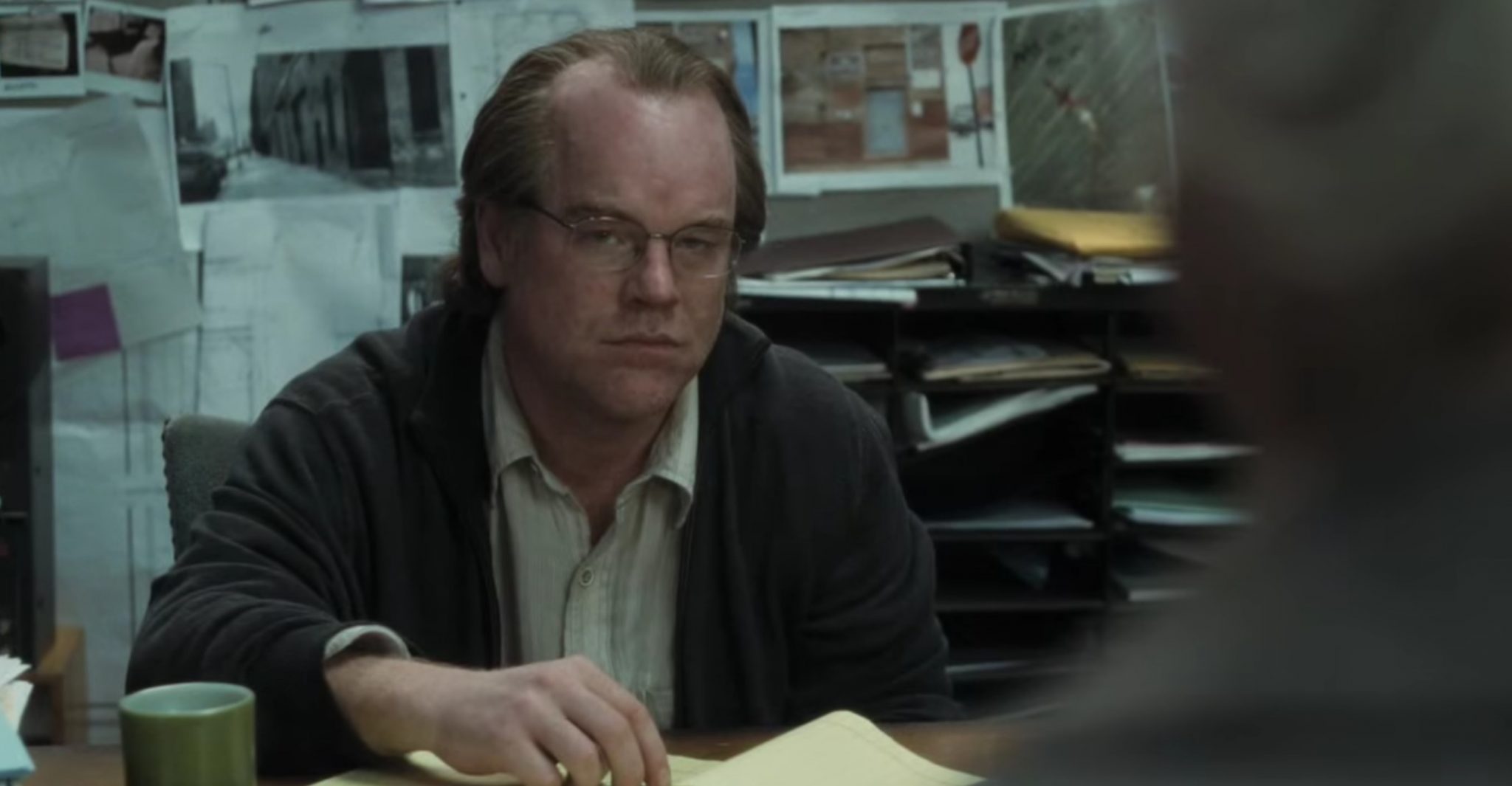
The first review was written by Alonso Duralde for The Today Show , and clocks in at around 500 words. The film focuses on the bullet points: characters, plot, and a concise review. The second review is over 3,000 words and published on the Critical Critics blog . This review goes into massive depth (and yes, includes spoilers) about the film, providing an incredible amount of analysis. The first review is tailored for the casual filmgoer, while the second is for cinephiles. Each review serves a different purpose.
It’s also a good idea to adjust your writing style to fit the target audience. For example, Alonso Duralde is a talented film reviewer and likely wrote the review to fit the tone of The Today Show site. Image via Director’s Library.
4. Talk about the acting.
When reviewing a film, it’s important to take space to discuss the performances. Does the film feature a seasoned actor in a new kind of role or a brilliant performance from a rising star? How was the acting? In a review by Brett Milam for the award-winning film Whiplash , he goes into rich detail about performances by both breakthrough actor Miles Teller and seasoned professional JK Simmons.
Regarding Teller, Milam writes, “This is a performance. This is art,” and about Simmons, “I found him fascinating to just look at.” Those are just small examples of the analysis he provides regarding their acting. As the film mostly focuses on the relationship between their two characters, Miles as the protagonist and JK as the antagonist, the review of the performances lends well to the plot of the film: student and teacher going head to head in an intense and determined showdown.
Feedback about how well the actors handled the script, the dynamics in an ensemble, and so much more can help describe how the actors did in any given film.
5. Call out directors, cinematographers, and special effects.
Reviews that include highlights or missteps of directors, cinematographers, and costume designers can help provide support to your critiques. By providing specific examples of what worked, what surprised you, and what fell short of expectations, reviewers can write a well-thought-out review that goes beyond whether or not you liked it.

In a review for A Wrinkle in Time , Monique Jones artfully crafts a piece that diplomatically cites the missteps of the film. From analyzing the quality of the CGI to the camera techniques to inconsistencies in the rules of the fantasy universe, Jones fairly offers a critique that guides the filmmakers and crew on future endeavors. To write this type of review, it helps to have some knowledge of the filmmaking process so you can properly assess the screenwriting, cinematography, special effects, acting, and more. Image via Disney.
6. No spoilers!
The point of writing a movie review is to get people interested in seeing a movie. That’s why it’s absolutely best practice to not reveal spoilers in a film review. Film reviewer Robert Daniels approaches this creatively. In his review of Annihilation , he provides commentary on what would be considered spoilers. However, he places that part of the review at the bottom of the article under a bold header/image that warns the reader he’s about to spoil the film. For reviewers who want to dissect the entire film, this is a good way to both tease the film for anyone who hasn’t seen it and cater to people who want to know what the ending is.
Remember: the goal of any film review is to discuss the plot without revealing any twists or the ending of the film.
7. Study the professionals.
As with all writing endeavors, the more you read, the better. However, with the modern landscape of film reviewing, which can go beyond writing and extend to content creation for social media platforms, there are a ton of reviewers to take notes from. First, determine what kind of reviewer you want to be, and what kind of medium you plan to deliver your reviews on. If you plan to post to Medium, for example, studying the reviewers already established on the site can be a great starting point.
Then, read film reviews for some of your favorite films. Determine which style of review you like and don’t like. Question why, and use your critical eye to consider why one reviewer has a hundred thousand followers and another only has two. If you’re looking to be featured on a website or a magazine, read the publications where you’d like your writing to appear as a template for your reviews, and don’t forget to read the submission guidelines. A few examples of film review professionals include Rotten Tomatoes , Roger Ebert , and Film Comment.
8. Reread, rewrite, and edit.
While writing film critique is based on opinion, and follows the style of the reviewer, it’s still important to edit work. Writers should check for spelling, grammar, and readability. No matter how good a writer’s opinions are, they will not be taken seriously if the director’s name isn’t spelled correctly. Tools such as Grammarly and Hemingway Editor can be great for correcting and finding areas that need improvement.
9. Find your voice.
The best reviewers have a distinct personality that comes across in their writing. Los Angeles Times film reviewer Carlos Aguilar wrote an impassioned piece about the film Beatriz at Dinner , going into a lot of detail about his experiences working in the film industry and his Mexican heritage. By sharing anecdotes about casual racism he’s experienced and connecting it to the film’s protagonist, and what she goes through, the review feels personal and relatable.

“If at a film festival – to which I’ve gotten access to because I’m a published writer – in a progressive city like Los Angeles, I must keep my guard up when people question my right to be there, then how are the voiceless supposed to feel safe, respected, or hopeful?” Aguilar writes.
For new reviewers, developing this type of unique voice does not happen overnight, so take every opportunity to write as an opportunity to develop your style. Image via BBC.
10. Know your taste.
As a film reviewer, it can be helpful to identify your taste in film. By knowing specific preferences, strengths, and biases, reviewers can offer nuanced critiques that resonate with audiences and provide valuable guidance on which films they might enjoy. Additionally, it helps to maintain credibility and integrity as a reviewer by ensuring that assessments are authentic and reflective of personal cinematic sensibilities.
Try to explore various genres, directors, and themes to understand what resonates emotionally, intellectually, and aesthetically. Pay attention to the types of stories that engage you, which can help define your preferences.
Learn More About Filmmaking at NYFA
Film students with writing experience actually make great reviewers, as many of them are required to study a range of topics relating to film that can include cinematography, screenwriting, producing, and much more. Ready to build even more skills in filmmaking? Request more information about New York Film Academy’s filmmaking programs and workshops today!
Quick Guide on How to Write a Movie Review Essay

What Is a Movie Review
The internet has revolutionized the realm of film criticism. No matter a movie's level of quality, it is always worth analyzing. Despite the growing number of individuals attempting to write about movies, few are successful. Most people do not provide insightful analysis, instead simply state how much they liked or disliked the film.
A movie criticism, usually composed by a professional in film studies, takes a comprehensive look at the film from a historical, social, political, or theoretical standpoint. This is unlike the opinion or suggestion given in a movie review, which is shorter and more concise.
A remarkable aspect of a good film review is that it doesn't just rate the movie but provides explicit views that form the critique's basis. This form of writing, like crafting essays, research papers, and term papers, should be insightful and draw the reader in quickly. It's important to discuss the reputation of the lead actors and directors and to write about what you expected and if they were met. The reviewer must explain a story's development without recalling major plot points and endings. The review must be concise, engaging, and should involve metaphors, specific words, analogies, etc.
Movie Review Purpose
Most film reviews are intended to guide readers in deciding whether to view, rent, or purchase the film. They should provide the necessary information to aid readers in deciding without divulging any fundamental details, such as the storyline or any surprises. This paper is common in schools because the lecturer wants to evaluate the student's ability to think critically and report the event easily for others to understand.
Movie reviews typically present a brief summary of the film's storyline. They provide readers with an overview of the characters, relationships, and scenarios but do not convey the complete narrative. Perusing the review should be different from seeing the movie. Nonetheless, feel free to highlight the essential moments or pivotal points that make the film worthwhile viewing.
Our college essay writing service has put together some advice on composing a movie review essay like a real critic, so let's explore the article further!
How to Write a Movie Review: Movie Review Outline
The structure is key when it comes to the quality of your paper. Don't neglect the power of a good outline, no matter what paper you're writing. Outlines help you stay on track and make sure your paper flows well.
Taking the time to arrange your ideas before starting to write is an effective way to save time further down the line. With a well-structured plan already in place, you won't have to worry about other elements. This will also make the writing process less stressful. Here is a guide on how to organize your movie review outline:

How Do You Start a Movie Review Essay: Introduction
The introductory paragraph is the first obvious step in crafting a movie review essay outline. Here, you want to quickly captivate the reader. Deliver your viewpoint instantly and make it unambiguous. Don't leave the audience wondering whether you enjoyed the film. Tell them right off the bat so you have time to justify your assessment throughout the remainder of the process.
In the introduction movie review should also describe your thesis. Develop the main concept for your essay that you can support using your perceptions of the movie's various aspects. The reader should be able to tell from this statement if you thought the film was fantastic, awful, or simply alright. By including a thesis statement, you may move your analysis beyond the plot synopsis phase into the movie critique category, which is considered a separate creative process.
Crafting Your Essay Movie Review Analysis
According to our research paper service , film analysis is similar to building a case. You're attempting to influence the reader to follow your recommendation to watch or disregard the film. So, you must ensure your essay movie review will be convincing. Giving instances that demonstrate the validity of your personal opinion is the only method to do this. If you find any dialogue in the movie that you think best exemplifies whether the work is strong or not, utilize quotes. This also applies to all of the movie's artistic decisions. But, just because a movie's narrative isn't strong or engaging doesn't indicate the rest of the film is worthless. Carefully highlight how some factors might undermine the movie in your explanation.
The movie's plot is only one component and shouldn't dominate the overall piece. The following are the important aspects to include in your movie review structure:
Cinematography - Cinematography covers much more than simply camera angles. It includes how the picture is lit, how it moves, appears, and what lenses are used. Here you can try the following analysis: 'Warm, gentle colors are used throughout the film, combined with soothing whites and grays, to simultaneously create and gradually tear away the characters' romantic sentiments for one another. There is a painting-like quality to each image.'
Editing - The editing is arguably the absolute star of what creates a good movie review example. It affects both the duration and the flow of a movie. Without effective editing, there would be uncomfortable gaps between pictures and many errors.
Costuming - The clothing the characters wear is called a costume, but there are a number of things to consider while evaluating movie costumes. You should be able to decide if the outfits suit the characters and the movie's atmosphere.
Casting and Acting - Finding the ideal performers to bring characters to life is the goal of casting. This sometimes entails seeing performers portray both familiar personas and figures who are entirely at odds with who they are. Casting, therefore, involves more than just finding talented performers. You can assess the acting in the following way: 'Even though he excels while on the go, his stoic behaviorism causes him to fall short of his co-star during calm scenes where he keeps a blank look on his face.'
Once you have finished analyzing the acting, directing, cinematography, setting, etc., wrap up with concise, stimulating wording to sustain readers' attention. Don't forget to provide a few examples to support your statements about the film.
Concluding Your Essay Movie Review
Finalize your review by coming full circle. Close the review by returning to your introductory fact or thesis. Give your readers a refresher on the movie's most intriguing aspects. It's important to remember that before choosing a movie, viewers check reviews. Finish with a statement indicating whether it is worthwhile for them to view. Be specific about who this movie will be more fascinating to and why in your suggestions. Remember that your ending is your last shot at influencing your audience, so use it wisely.
No matter the kind of movie review you have to complete, our professional specialists are willing to help you. Directly forward your needs to our research paper service and get it done quickly.
Need Help With MOVIE REVIEW WRITING?
No matter what type of movie review you want, our qualified specialists are ready to assist you.
Short Movie Review Form
If you are currently working on a new or old movie review, reading our suggestions should be sufficient to help you earn an A. So what if you'll be writing many reviews in the future? In this situation, we advise you to develop a uniform movie review template, which will enable you to save time and complete your upcoming projects successfully.
So, how to write a movie review template, you may ask? Well, our essay helper prepared a simple yet great movie review template you may use as a foundation for your own writing if you need some help getting started:


Example Papers
Once you know how to review a movie and learn the most valuable tips to handle this assignment, it is time to look at some movie review examples to get you on the right track.
Check out the following pieces to see which of these movie review essay examples you might want to keep at hand when working on your own assignment:
Helpful Tips on Writing Movie Reviews
Here are some extra helpful tips to keep in mind when unsure how to write a movie review essay:

- Add Your Own Personal Feel to Your Movie Critique - You might not have much spare time for your pastime of reviewing. You won't be able to write a movie review, though, if you just wing it without reading what others have said. Make a note of the things that intrigued you, alarmed you, made you uncomfortable, or caused you to pause and consider something, and then use that list as the basis for your research.
- Develop a Distinctive Writing Style - Have an idol—it's good for you. You must be careful not to just paraphrase and duplicate what they say without adding your own original viewpoint. Instead, in order to stand out from the throng, you must discover your own voice. When writing movie reviews, you should also have a distinct writing style.
- Include Extensive Information -Mention the film's photographer, special effects designer, and director. Your review might be significantly impacted by this. Then you may list all the memorable movie moments that also stuck with you.
- Voice Your Views and Back Up Your Criticism - Give your own assessment of the film. Make sure you have evidence to support your criticisms. Use the movie's details that most shocked or humiliated you. Review genuine information rather than merely expressing your opinions without supporting details.
Final Thoughts
Composing a good movie review essay sample is easy if you follow this article's main steps and techniques. Furthermore, we strongly believe that this guide will assist you in achieving remarkable outcomes and ease your writing process. The staff at EssayPro is always available to provide a helping hand if you need a little additional push with movie review examples or even if it's simply coming up with a catchy essay title .
Order an essay and await excellent results! Contact our expert writers and ask them to ' write my essay for me ' – and they will ensure your academic success!
Do You Require a Skilled Professional Writer?
Our writers take extra measures to make sure that your essay is created precisely in accordance with your specifications.
FAQs on Writing an Essay Movie Review
Here are the most frequently asked questions on how to write a movie review. We provided extra details on movie analysis to simplify writing film reviews.
What are the 6 Important Things to Include in a Film Review?
How long should a movie review be, what are the 5 c's in film.

is an expert in nursing and healthcare, with a strong background in history, law, and literature. Holding advanced degrees in nursing and public health, his analytical approach and comprehensive knowledge help students navigate complex topics. On EssayPro blog, Adam provides insightful articles on everything from historical analysis to the intricacies of healthcare policies. In his downtime, he enjoys historical documentaries and volunteering at local clinics.

Home — Essay Samples — Entertainment — Movies — Movie Review
Essays on Movie Review
Once in a while, you’ll be asked to do a movie review essay. This task is a great training tool for enhancing critical thinking skills. Essays on movie review aim at presenting a film from the most important scenes, special effects, to exciting moments and may be accompanied by criticism. From an advertising perspective, such a paper is aimed at convincing readers to watch the movie in question. Your writing should let a reader draw a conclusion, i.e, whether the film is worth their time or if they should try something else. Most importantly, your opinion must be independent and accurate. But how can you create a perfect introduction if you don’t have the experience in this type of writing? Relax. A good online writer can do it for you. If you have an idea but need some guidance, simply ask for a professional outline or use evaluation essay examples for students for more insights.
Hook Examples for Movie Review Essays
"a cinematic masterpiece" hook.
"Prepare to be captivated by the sheer brilliance of this cinematic masterpiece. Explore how every frame, performance, and detail contributes to a visual and emotional spectacle."
"Beyond the Screen: Themes and Messages" Hook
"This film transcends entertainment, offering profound themes and powerful messages. Dive into the underlying ideas and social commentary that make it a thought-provoking experience."
"The Journey of Character Development" Hook
"Follow the compelling journey of characters who evolve throughout the film. Analyze their growth, conflicts, and relationships, making this movie a character-driven narrative."
"Visual Delights: Cinematography and Special Effects" Hook
"Be prepared to be visually stunned by the breathtaking cinematography and cutting-edge special effects. Explore how these elements enhance the storytelling and immerse the audience."
"Unforgettable Performances" Hook
"The cast delivers unforgettable performances that breathe life into the characters. Discuss standout acting moments, character dynamics, and the emotional impact of their roles."
"The Soundtrack: Music That Moves" Hook
"The film's soundtrack is more than just music; it's an integral part of the storytelling. Explore how the score enhances emotions, sets the tone, and complements the visuals."
"Cinematic Analysis: Directing and Editing" Hook
"Delve into the meticulous craftsmanship of the director and editor. Analyze their choices in pacing, sequencing, and storytelling techniques that make this film a cinematic triumph."
Emotional Complexity in Pixar's Inside Out: a Cinematic Masterpiec
Commonalities in contrast: the alike features of bruno and shmuel, made-to-order essay as fast as you need it.
Each essay is customized to cater to your unique preferences
+ experts online
Cinematic Brilliance of Camera Angles in La La Land
Titanic movie review: acting and emotions, a critical look at aladdin the movie, the wizard of oz movie review, let us write you an essay from scratch.
- 450+ experts on 30 subjects ready to help
- Custom essay delivered in as few as 3 hours
Shrek 2: an Animated Movie Review
Sociological analysis of zootopia, a movie review of back to the future, a science fiction film by robert zemeckis, review of the movie clueless, get a personalized essay in under 3 hours.
Expert-written essays crafted with your exact needs in mind
The Description of The Movie "Harry Potter and The Sorcerer's Stone"
"avengers: endgame": movie review, disney's beauty and the beast movie analysis, maleficent movie review: a fresh take on the sleeping beauty, analysis of the film "bad boys ii" by michael bay, greatest series of all time: "stranger things", the "inception" movie: review, a critical review of the movie finding nemo, a review of the film 'coraline', a report on the film avengers: infinity war, "tom and jerry" - one of the most famous cartoons, the personality of spongebob squarepants, film review: traffic by steven soderbergh, movie review: forrest gump, the blind side movie review and analysis, shutter island analysis: the role of symbolism, a study of the impact of caillou and spongebob on children, review of the series, gossip girl, film review: 12 monkeys, breakfast at tiffany’s: a revolutionary romantic comedy, relevant topics.
- Do The Right Thing
- Documentary
- Miss Representation
- Indian Horse
- The Hunger Games
- Ready Player One
- Hidden Figures
- Freedom Writers
- 12 Angry Men
- Movie Summary
By clicking “Check Writers’ Offers”, you agree to our terms of service and privacy policy . We’ll occasionally send you promo and account related email
No need to pay just yet!
Bibliography
We use cookies to personalyze your web-site experience. By continuing we’ll assume you board with our cookie policy .
- Instructions Followed To The Letter
- Deadlines Met At Every Stage
- Unique And Plagiarism Free
- How to Order
How To Write A Movie Review
How to Write a Movie Review - Guide & Examples
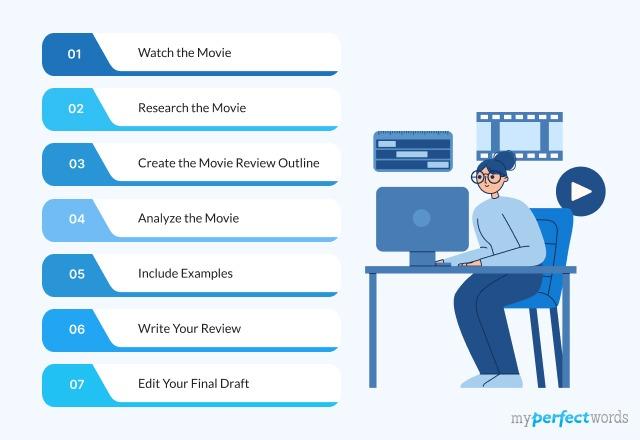
People also read
Learn How to Write an Editorial on Any Topic
Best Tips on How to Avoid Plagiarism
A Complete Guide on How to Write a Summary for Students
Write Opinion Essay Like a Pro: A Detailed Guide
Evaluation Essay - Definition, Examples, and Writing Tips
How to Write a Thematic Statement - Tips & Examples
How to Write a Bio - Quick Tips, Structure & Examples
How to Write a Synopsis – A Simple Format & Guide
How to Write a Comparative Essay – A Complete Guide
Visual Analysis Essay - A Writing Guide with Format & Sample
List of Common Social Issues Around the World
Writing Character Analysis - Outline, Steps, and Examples
11 Common Types of Plagiarism Explained Through Examples
Article Review Writing: A Complete Step-by-Step Guide with Examples
A Detailed Guide on How to Write a Poem Step by Step
Detailed Guide on Appendix Writing: With Tips and Examples
A movie review is one of the most common writing assignments that students face. Many people struggle with writing, and some don't know what they should write to meet their teacher's expectations.
The best way to write a movie review is by understanding the purpose. You will get better grades if you understand what's important for a good piece of work.
There are a lot of movie reviews available on different websites on the internet. However, some are written by amateurs only for fun, and others are written professionally.
If you want to learn how to write a movie review for college, keep on reading. It is a great chance for you to learn about the world of film criticism.
In this blog, you will find a step-by-step guide and examples for becoming a perfect movie critique.

Paper Due? Why Suffer? That's our Job!
- 1. What is a Movie Review?
- 2. How to Write a Movie Review?
- 3. Movie Review Example
- 4. Movie Review Topics
- 5. Movie Review Writing Tips
What is a Movie Review?
A movie review is an analysis of a film or a documentary. Writing a great movie review involves detailed research, analysis, and reporting the writer’s view in a logical and structured way.
It is a well-balanced synthesis of personal opinion and a critical analysis of themes and plots. Writing film reviews is considered creative writing. It involves both analytical and innovative approaches to come up with the best movie review.
The combination of an analytical approach and creative skills will help you craft an exhaustive and convincing piece of writing.
Purpose of Writing a Movie Review
The reason for writing a movie review is to tell others what you think about a movie.
When you write one, you share your opinions on whether you liked it or not and why. It helps people decide if they want to watch the movie or not.
So, the purpose is to share your thoughts and help others make a choice about the movie.
The combination of an analytical approach and creative skills will help you craft an exhaustive and convincing piece of writing.
Important Elements of a Movie Review
All movie reviews have in common the elements that they contain regardless of the genre. The elements of a movie review provide an overall structure on which the whole analysis is based. A good review must comprise the following components:
It is not just enough to include the title in the headlines. Make sure to include it in the text as well as in the introductory paragraph.
Another important element that you need to pay attention to is the storyline, also known as the plot. Mention it clearly and concisely for the readers who have not watched the movie yet.
Don’t forget to dedicate a paragraph to the filmmaker and discuss their personality. Provide some background information and the controversial and political side (if relevant).
The cast is one of the important factors that a movie has. Your review should properly indicate if they have acted well or not. Do not forget to mention if they have the required skills to portray the character they played.
Creative elements play an important role in the overall success or failure of the film. Your movie review must state these elements and how they contributed to the storyline. These elements include costumes, lighting, sound, camera work, etc.
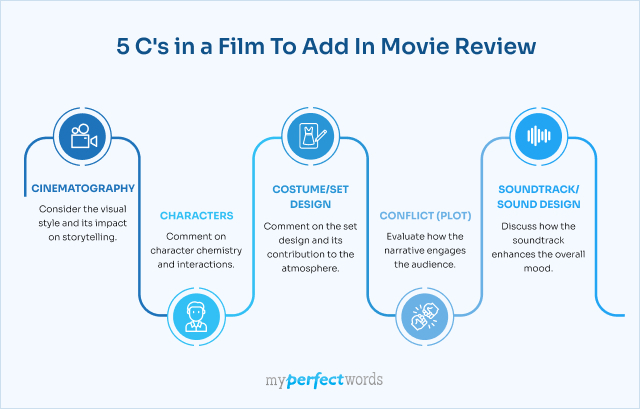
How to Write a Movie Review?
Writing a movie review may seem like an impossible task, but it can be learned easily. You should know the movie review format.
Therefore, you can present both interesting opinions and amazing writing skills clearly without any confusion.
Below are the steps on how to write a movie review that any student can follow.
1. Watch the Movie
Watch the movie and take notes of the important points. Be focused and conscious throughout the film to record characters, events, minor and major details.
2. Research the Movie
To watch the film only once is not enough; you might have to watch the movie at least 3 times. It is important to give quality time to research as well. Reviews require great research to find some important information. Such as who the filmmaker is, characters, and events that lead to the movie, plot summary, location, symbolism, etc.
3. Create the Movie Review Outline
The best way to organize your review logically is to make an outline first. The outline is a framework on which your whole review is going to stand. It is important to have an outline before you start writing your review.
Confused how to write a movie review template? Here is an outline for you:
A. Briefly introduce the movie (title, director, release date) B. Provide some context or background information (genre, setting)
A. Summarize the main storyline without giving away major spoilers B. Highlight key plot points or twists
A. Discuss the main characters and their roles in the movie B. Comment on the performances of the actors
A. Evaluate the visual aspects of the film (cinematography, special effects) B. Discuss the use of camera angles, lighting, and overall visual style
A. Analyze the music and sound design B. Discuss how the soundtrack enhances or detracts from the viewing experience
A. Identify any themes or messages explored in the movie B. Discuss how well these themes are conveyed and whether they resonate
A. Evaluate the pacing of the movie (fast, slow, consistent) B. Comment on the editing and its impact on the overall flow
A. Discuss the emotional or intellectual impact on viewers B. Consider whether the movie leaves a lasting impression
A. Highlight the strengths and weaknesses of the movie B. Provide constructive criticism where necessary
A. Summarize your overall thoughts on the movie B. Offer a recommendation or rating (e.g., out of 5 stars) |
4. Analyze the Movie
Once you understand the movie, start the analysis. Critically evaluate the movie from the start to the end and note each and every detail. Once you analyze and understand each point, you are all set to write a good movie review.
5. Include Examples
A great movie review needs to include relevant examples to support your claims and observations. Mention everything that you have observed while watching the movie. It is not enough to make general statements; you must support your arguments and claims with strong evidence.
6. Write Your Review
After gathering all the required information and examples, you can start the writing process by following the above outline. Make the introduction paragraph exciting and engaging. Reveal as much information as possible in the body paragraphs. To conclude, connect the information back to the introduction in a creative way.
Tough Essay Due? Hire Tough Writers!
7. Edit Your Final Draft
Once you are done writing the first draft, make changes and re-write the final version. In the editing phase, be sure to check for important information that might have been left out. Also, check grammar or spelling mistakes before submitting it.
The steps explained above could be used for writing a movie review for middle school, high school, and college. Moreover, you can get help from the following guide.
Check out our how to write a movie review for school example for better understanding:
Writing a Movie Review
Movie Review Example
Want to learn how to write a movie review without spoilers?
To gain a better understanding of how to write a movie review essay and how film review examples for students look, check out this sample.
The Odd Life of Timothy Green - Movie Review
How To Write A Film Review Pdf
Short Movie Review Examples
Movie Review Topics
Here are some movie review topics that can help put your work in the right direction from the very start.
- Write a review on Titanic Movie
- A critical review of Jurassic Park Movie
- Write A Review on 2001: A Space Odyssey
- One Cut of the Dead - Review
- A review of Burning Cane Movie
- An honest review of The Ron Clark Story Movie
- The Miracle Worker Movie Review
- A Comparison between The Boy In the Striped Pajamas Book and Movie
- Discuss symbolism in Alice’s Adventures in Wonderland Movie
- Write a Review about the Film Adaptation of Pride and Prejudice
Movie Review Writing Tips
Writing a compelling movie review requires a balance of insightful analysis and engaging expression. Here are some tips to enhance your movie review writing:
- Be Concise: Keep your review focused and concise. Aim for clarity and avoid unnecessary details.
- Structure Matters: Organize your review with a clear structure, including an introduction, body, and conclusion. Follow a logical flow to guide your readers through your analysis.
- Balance Opinion and Analysis: Blend personal opinions with objective analysis. Support your views with specific examples from the film.
- Avoid Spoilers: Be mindful of spoilers. Provide enough information to convey your points without giving away major plot twists.
- Consider the Audience: Keep your target audience in mind. Tailor your review to the interests and preferences of potential viewers.
All in all, it is not difficult to write a movie review if you know the basics. Just follow this guide and craft an amazing review.
Still if you are facing any issue in writing a movie review, consider taking help from our essay writing company .
We guarantee a high-quality review written by professional writers. With us, you will submit a movie review worthy of an A grade.
So, don’t waste time and hire us today!
Frequently Asked Question
How long should a movie review be.
A movie review is typically around 300 to 500 words, providing enough space to cover key aspects without becoming overly lengthy.

Write Essay Within 60 Seconds!

Dr. Barbara is a highly experienced writer and author who holds a Ph.D. degree in public health from an Ivy League school. She has worked in the medical field for many years, conducting extensive research on various health topics. Her writing has been featured in several top-tier publications.

Paper Due? Why Suffer? That’s our Job!
Keep reading

Breakout English

How to write a film review
Writing a review is an option in many different English language exams, and films are such an obvious choice for reviews, so knowing how to write a film review is pretty important. It’s a great topic for the classroom too. Everyone watches films and there is a lot of opportunity to teach vocabulary, either film-related vocabulary or film review adjectives. I like to start off a class about films with some chat, or my personal favourite, the Movie Music Quiz , which also now has an excellent Movie Picture Quiz version too.

The structure of a film review
Like any writing task, it’s essential to know the structure of a film review before you start writing. A basic film review template shows you how to write a film review using a simple structure. Film reviews for First (FCE) and Advanced (CAE) Cambridge exams, as well as Trinity ISE exams, should all use a 4 paragraph structure. Another thing to remember is that your review should always have a title, and that title should include the name of the film.
- Introduction – Essential details and mini-summary
- Summary – A description of the film and some important details
- Analysis – An evaluation of different elements
- Conclusion – Your opinion and a recommendation
Introduction
In the introduction of a film review, it is crucial to mention the film title and the names of the director and the main actors. A brief summary of the film’s plot and background information can also be included, but it should not give away too much detail. The introduction should engage the reader and entice them to continue reading the review. Additionally, it is important to mention the genre and target audience of the film, which will give the reader an idea of what to expect.
In the summary section, the film review should give a comprehensive but concise description of the film, focusing on the plot, characters, and any significant events. The summary should be written in a way that does not give away the ending or spoil the film for the reader. It is important to maintain objectivity and not include personal opinions in this section. This section should provide enough detail for the reader to have a clear understanding of the film without giving too much away.
The analysis section is where the reviewer can showcase their critical skills and provide an in-depth evaluation of the film. The review should examine various elements of the film such as the script, direction, cinematography, acting, and special effects. You could also make a comparison to similar films in the same genre. The analysis should be written in an objective style with the opinion only showing through the language used.
In the conclusion, the reviewer should give their personal opinion of the film, summarising their thoughts on its strengths and weaknesses. They should also consider the target audience and whether they believe the film will appeal to them. Finally, the reviewer should provide a clear recommendation. The conclusion should be concise, leaving the reader with a clear understanding of the reviewer’s overall opinion of the film.
Using adjectives in reviews
Reviews are a great way to show off your language with impressive adjectives. If you read a film review in a newspaper or magazine, you’ll notice that the reviewer rarely, if ever, gives an explicit direct opinion. However, their opinion of the film is always crystal clear. This is through the use of adjectives.
Many adjectives have a clear connotation. They are either perceived as positive or negative. Compare these two examples. Which one is a positive description and which is negative?
- It’s a first-rate experience with an imaginative plot and a star-studded cast.
- The second-rate writing combined with weak performances is typical of this director’s work.
When using adjectives in a film review, it is important to choose words that accurately convey the reviewer’s opinion. Adjectives with strong connotations, either positive or negative, can be very effective in expressing the reviewer’s thoughts about the film. However, it is also important to use a variety of adjectives to avoid repetition and keep the review interesting. The use of adjectives can also help to paint a picture of the film, allowing the reader to get a sense of its atmosphere and tone.
The materials
Many exams, such as the Cambridge First (FCE) and Advanced (CAE) exams, as well as Trinity ISE exams, require students to write a film review as part of their writing task. These materials will provide students with a solid understanding of the structure of a film review and help them to develop their writing skills. This will give them the confidence they need to write a review that meets the requirements of the exam and impresses the examiner.
The materials will help you learn how to write an introduction, summary, analysis, and conclusion of a film review. You will also see a range of useful adjectives that you can use to express your opinions in their reviews. Finally, you will get an opportunity to practise writing film reviews, which will help you to develop your skills. Then you can check your answers with the samples provided in the answer key. Whether you’re preparing for an exam or just looking to improve your writing skills, these materials will provide you with everything you need to write a great film review.
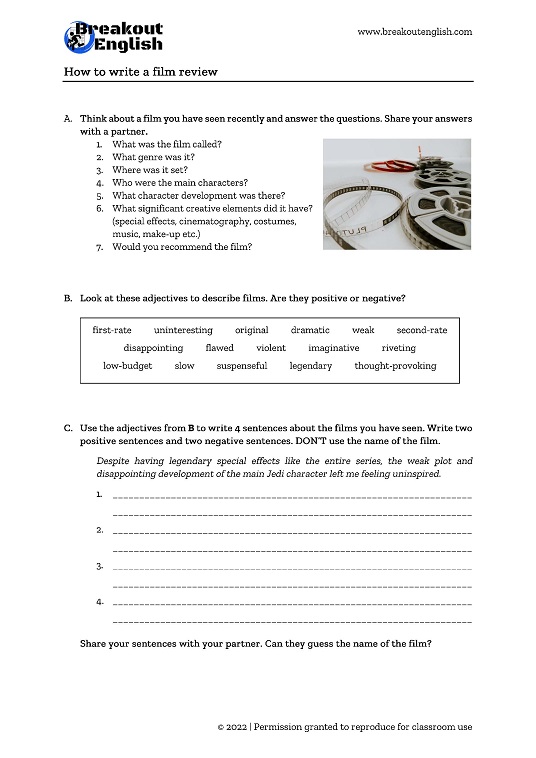
1 thought on “How to write a film review”
Interesting and useful material to be used in class. thanks!
Comments are closed.

This headline could be enough to kill him
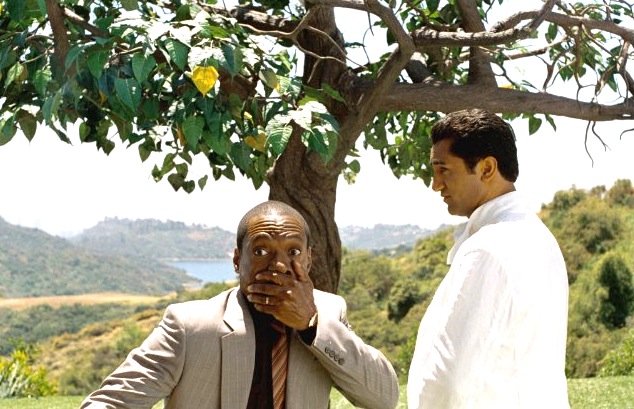
The poster art for “A Thousand Words” shows Eddie Murphy with duct tape over his mouth, which as a promotional idea ranks right up there with Fred Astaire in leg irons. The idea is that every time he says a word a leaf falls off the magical bodhi tree in his back yard, and when the last leaf falls, he dies.
Let’s stop right there. Why did the bodhi tree magically spring out of the earth fully grown? I don’t know. It must have something to do with a guru whose book he is trying to sell. Murphy plays Jack McCall, a literary agent who never reads books, and maybe this is karmic revenge. How is it determined that the tree began with 1,000 leaves? I dunno. It looks healthy to begin with, and the average bodhi tree has about 100,000 leaves. How do I know that? I don’t, but it seems likely.
Jack is a motor mouth showboat who lives with his wife Caroline ( Kerry Washington ) and their son in a vast glass-walled bachelor’s pad. I guess she’s his wife. They have the same last name in the movie’s credits, although at one point she indicates they aren’t married. It doesn’t make the slightest difference to the movie.
Jack’s most meaningful relationship is with Aaron Wiseberger ( Clark Duke ), his nerdish assistant. It’s Aaron who tapes his mouth shut to save his life when he’s down to a few hundred words. Some words he squanders on his cell phone, and even more get used up during visits with his mother Annie ( Ruby Dee ), who has Alzheimer’s and thinks he’s his own father. You know with a dreadful certainty that sooner or later she will recognize him, and this will be intended as an uplifting turning point.
What “A Thousand Words” needs is some sort of a mystical score card to keep track of Jack’s status in the universe. The guru who wrote the book, Dr. Sinja ( Cliff Curtis ), apparently knows something about this bodhi tree, but never explains the rules. When Jack finally apparently redeems himself, it seems to be by instinct or good luck. I say “apparently” because, as heaven’s my witness, I’m not completely sure if Jack is alive, dead or reincarnated at the end of the movie. You could build a case for all three.
The running gag is that Jack has to communicate without speaking, or talk himself to death. At one point this struggle is conducted by using several dozen talking dolls and action figures which are conveniently scattered around the literary agency. Jack also does desperate pantomimes and gets so frustrated he seems ready to explode. I’m thinking, what I’d try is writing notes. But no, when he tries that the leaves drop off anyway.
I learn from Wikipedia that “A Thousand Words” was originally filmed in 2008. It was scheduled at one point to open in 2011, but was rescheduled until after the Oscars to take advantage of Murphy being named named to host the ceremony. That didn’t work out, either.

Roger Ebert
Roger Ebert was the film critic of the Chicago Sun-Times from 1967 until his death in 2013. In 1975, he won the Pulitzer Prize for distinguished criticism.
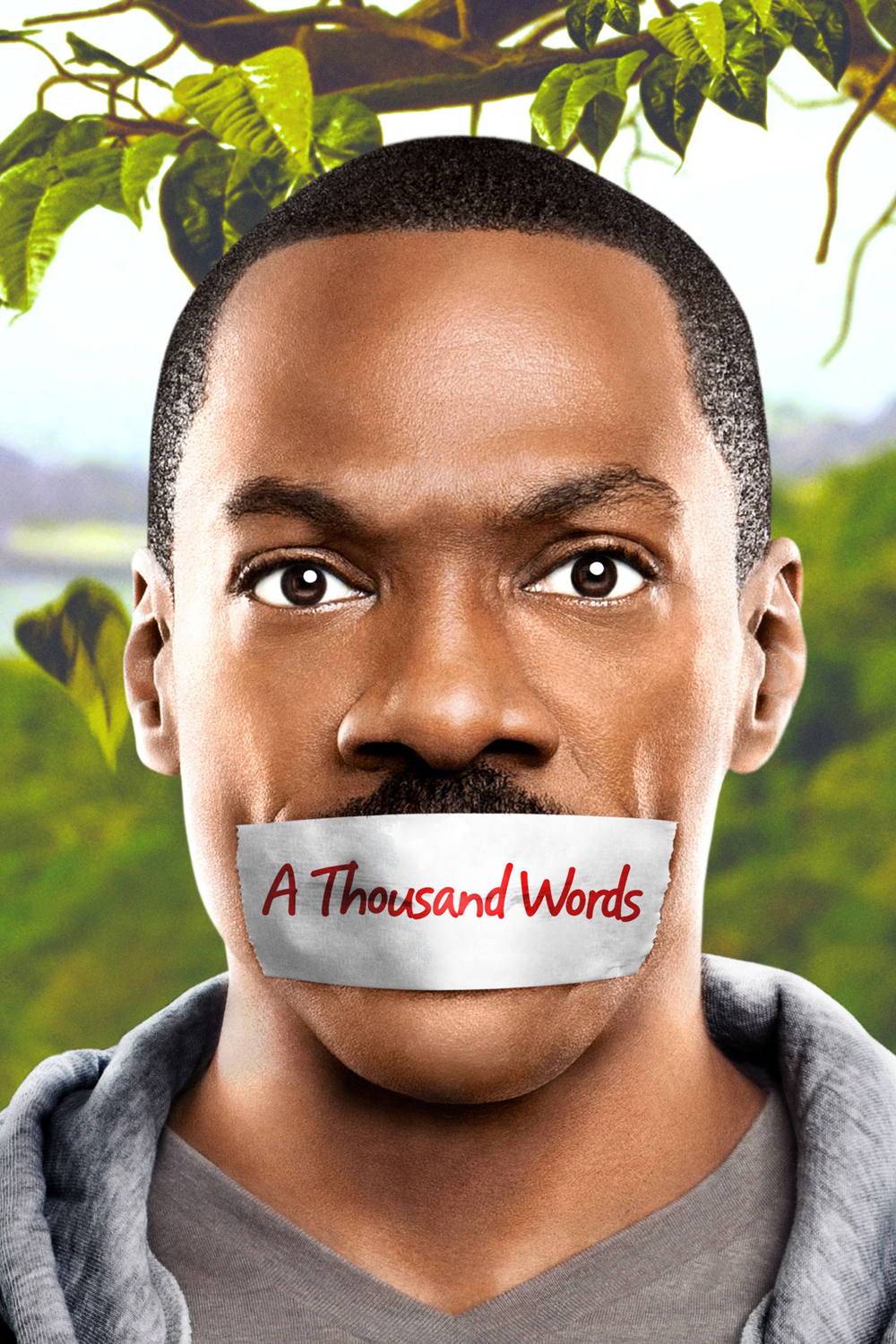
- Kerry Washington as Caroline McCall
- Clark Duke as Aaron Wiseberger
- Lou Saliba as Shrink
- Alison Janney as Samantha Davis
- Cliff Curtis as Dr. Sinja
- Ruby Dee as Annie McCall
- Eddie Murphy as Jack McCall
Directed by
- Brian Robbins
Screenplay by
- Steve Koren
Leave a comment
Now playing.
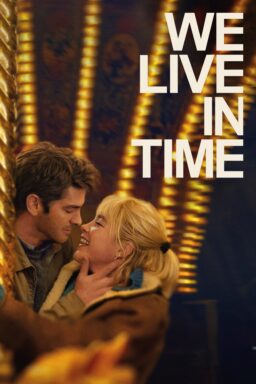
We Live in Time
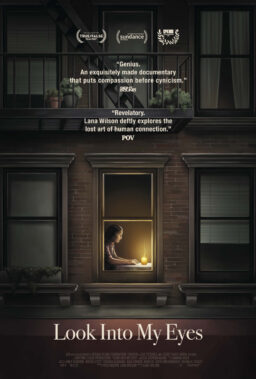
Look Into My Eyes

The Front Room
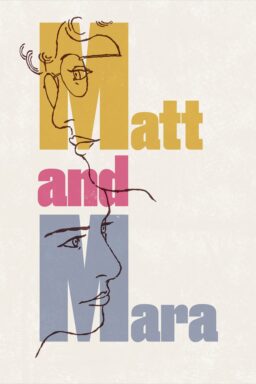
Matt and Mara

The Thicket

The Mother of All Lies

The Paragon
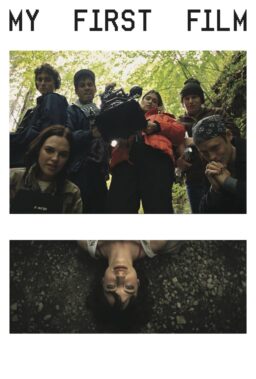
My First Film
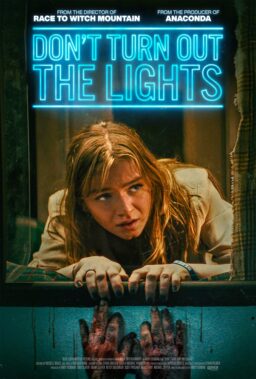
Don’t Turn Out the Lights

I’ll Be Right There

The Greatest of All Time
Latest articles.

TIFF 2024: Don’t Let’s Go to the Dogs Tonight, Sharp Corner, The Quiet Ones

TIFF 2024: Dahomey, Bird, Oh Canada
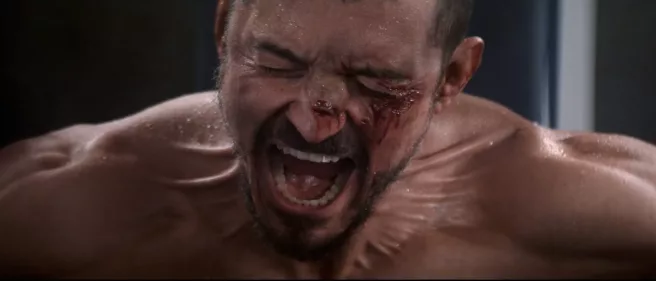
TIFF 2024: The Cut, The Luckiest Man in America, Nutcrackers

The Telluride Tea: My Diary of the 2024 Telluride Film Festival
The best movie reviews, in your inbox.
- Writing Style
- How to write …
- Analysis of Speech
- Storytelling
- Career Development
How to Write a Film Review: Preparation, Steps, Examples
- by Anastasiya Yakubovska
- 06.10.2022 10.05.2024
- How to write ...
How to write a film review (true, professional, and comprehensive) and not be limited to the phrase “What a great movie!”? In this article, you will find answers to the next questions:
- How long is a movie review?
- How many paragraphs does a movie review have?
- Features of the Film Review
- Functions of the Movie Review
- How to Write a Film Review: Preparation for Writing
- 10 Questions You Need to Answer Before You Start Writing a Movie Review
- How to Write and Structure a Film Review: Step by Step
What Is a Film Review?
A film review is a critical judgment or discussion that informs about the release of a new film and contains its analysis, assessment, summary, as well as personal impressions and experiences after watching.
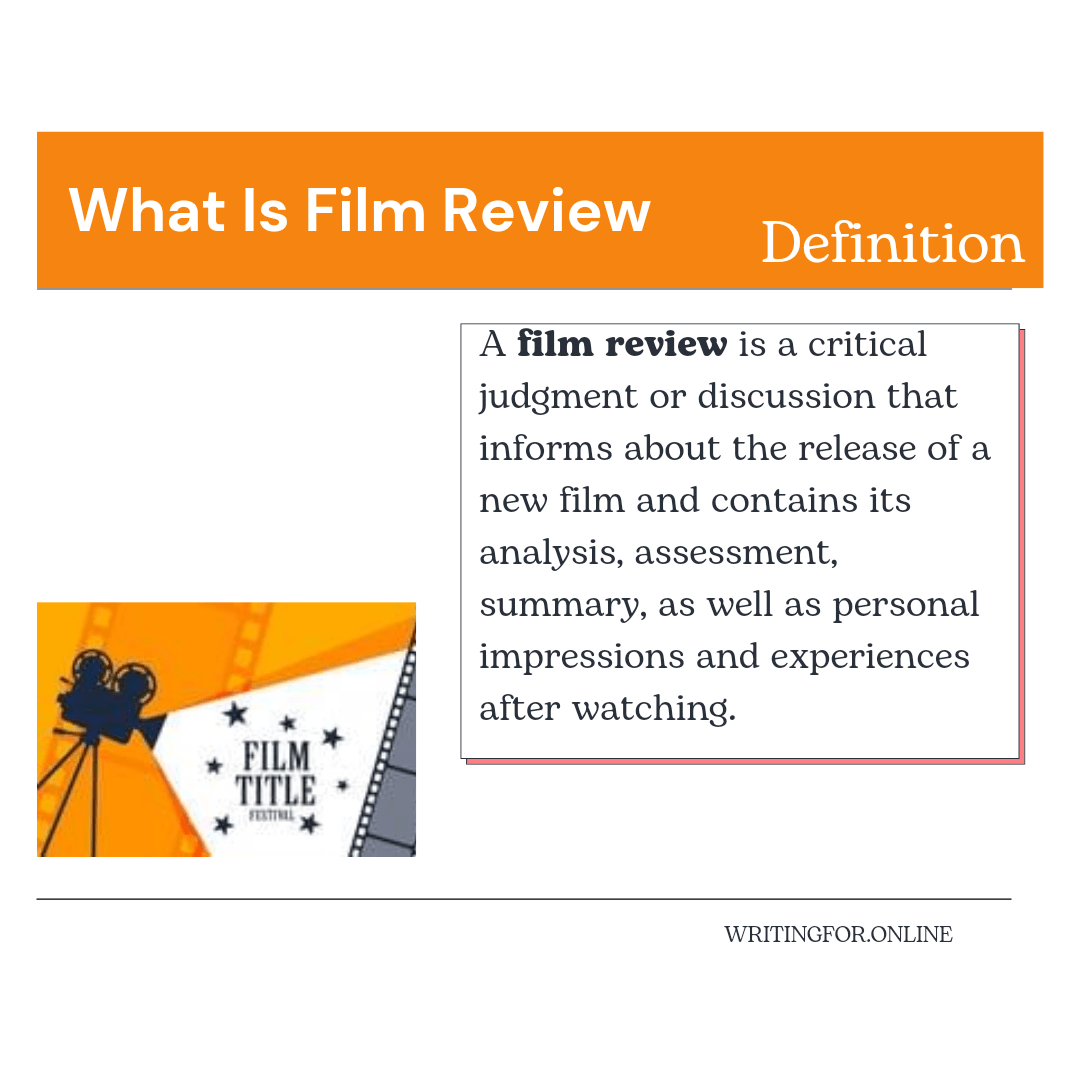
How long is a movie review?
On average, the length of a film review is about 1000 words.
How many paragraphs does a movie review have?
It is recommended that the film review should consist of 5-7 paragraphs.
Read also article “How to Write a Book Review: Step by Step and Examples”.
Features of the Film Review
A film review is a persuasive piece of writing, it has some features as:
- A less formal style of writing.
- You need to write objectively about the film.
- But, on the other hand, movie reviews contain personal thoughts and feelings.
- The film review’s audience is wider and more diverse.
Movie reviews can be written by two groups of reviewers: professional critics and ordinary consumers. Therefore, the text of the review will differ. In the first case, when the reviewer is a professional critic, he will describe the movie instead of evaluating it. While consumer critics mostly write from a personal perspective.
What is the main purpose of a film review?
The main purpose of a film review is to inform readers about the film (what can expect from it) and to help them determine if they want to watch the movie.
Functions of the Movie Review
The film review performs several functions at once: it informs, analyzes, persuades, and entertains. If you can include all of these points in your review, then you will have an excellent result in the end.
How to Write a Film Review: Preparation for Writing
Writing a review is, of course, a creative process, but you should not forget about the analytical approach to creating a convincing and high-quality text. You must take the work responsibly, which we will do now.
To write a professional film review, you first need to complete the following preparation steps:
- Of course, the first step is to find a film, if it has not been previously chosen by the manager/client/boss. There will be more chances to write a good review if the film was liked by both – film critics and you personally.
- Watch the movie at least 2-3 times. After the first viewing, you will get a general impression of the picture, and try to fully immerse yourself in the atmosphere of the film. Pay attention to the details the next time you watch it: the sound, the actor’s play, the editing, the plot.
- If you have difficulty understanding the events covered in the film (for example, historical), be sure to find additional information and research the topic.
- If after two viewings you still do not have a final assessment of the film in the form of a brief thesis, watch the film again. You can look at other works of the director who worked on this film, this will help you determine his characteristic style. Also, as an option, you can look at the game of actors in other films (for comparison).
- When watching a movie, take notes: key scenes, interesting plot twists, inconsistencies, details, and quotes. Then, based on them, you can build a review text, and a good quote can become an excellent epigraph.
- Find information about the filming: location, duration, season, details about the filming process, difficulties the production team faced, casting, etc. Such information will make the review more attractive to readers.
- If the film is nominated for awards and prizes, please include this information in your film review. For a potential viewer, such an assessment of the film will be a weighty argument in the direction of -> compulsory viewing.
10 Questions You Need to Answer Before You Start Writing a Movie Review
- Does the film split into multiple parts? A sequel, prequel, or one of the movie series?
- What is the film genre (action, comedy, historical, drama, fantasy, Western, political, thriller, gangster, horror, tragicomedy, romance, sports, mystery, science fiction)? Is the movie based on real or fictional events?
- Did the screenplay writer create an exciting plot?
- Is the rhythm of the film slow and quiet, heavy and static, or chaotic and frantic?
- What is the film’s rating according to the MPAA? ( G – General Audiences. All ages admitted. PG – Parental Guidance Suggested. PG-13 – Parents Strongly Cautioned. R – Restricted. Under 17 requires an accompanying parent or adult guardian. NC-17 – Adults Only.)
- Are there any films with a similar/same theme? Sometimes it is worth mentioning some of them in a review, as a comparison.
- How can you characterize the work of a cinematographer? How accurately are the most expressive compositional, lighting solutions, as well as camera angles, selected and embodied?
- Is the film entertaining or covers a serious themes?
- Was the casting successful? Did all the actors cope with their roles?
- Is the atmosphere of the film tense, mysterious, sinister, relaxed, or romantic?
The answers to all of the above questions will help you understand how to write a film review, and above all, create a draft version of your future review. But, of course, this is not enough for the final result.
How to Write and Structure a Film Review: Step by Step
Writing a film review is a long and complicated process. Therefore, it is better to break it down into stages and move step by step. This will help you not to get lost and not get confused in the details.
- The catchy introduction.
The introductory part of the review should contain important information about the film: title, director, release date, and genre.
You can mention nominations and awards, as well as indicate the box office (if the numbers are impressive) and the cast.
In addition to “technical” aspects and a simple presentation of the plot, it is necessary to express your impression of the film in the form of a thesis, for example, to tell:
- about the connection of the film’s central idea with current events and social problems;
- about the similarity of the film’s plot with a personal life situation, personal experience, and feelings;
- about the connection of technical elements (lighting, sound, editing) with the theme of the film.
2. Pass the verdict.
Do not torment the reader and express your opinion about the film in the first paragraphs of the review.
You should not leave all the most interesting “for later”. If you decide to give a final assessment of the film at the end of the review, what are the chances that the reader will read to this end?
3. Write a summary of the plot.
Choose 4-5 main events.
Avoid the film’s ending and spoilers. Keep the intrigue. If you want to spoil and share an unusual story development, warn the reader about this.
4. Bring the feelings.
In addition to presenting the plot of the film, you should add emotions to the text of the review and show what you felt while watching it.
5. Define the main purpose of the movie.
Perhaps the film’s purpose is hidden in its plot. Or maybe the film does not pretend to solve global problems at all. Perhaps the film is entertaining, and this is its advantage – it is relaxed and simple.
Sometimes the main idea of a serious and deep film can be found in an interview with a film crew, a screenwriter, or a director.
6. Add some details of the filmmaking process.
It is important to know the measure and not to overdo it with the terminology. Here’s what you can write about:
- Cinematography: visual mood, lighting elements, shot sizes and widths, camera angles, etc.
- Sound. The main goal is to create the necessary atmosphere in the film. Sound in movies includes music, dialogue, sound effects, ambient noise, background noise, and soundtracks.
- Editing is the creation of a finished motion picture from many shot scenes. A film editor must creatively work with the layers of images, story, dialogue, music, pacing, as well as the actors’ performances to effectively “re-imagine” and even rewrite the film to craft a cohesive whole.
- Mise-en-scène (from French – placement on the stage) is the mutual arrangement of the actors and their environment on the set, natural or pavilion. Mise-en-scene includes landscapes, visual effects, the psychological state of the characters, etc.
7. The deep meaning.
You may be able to spot specific symbolic items, repetitive moments, or key phrases that give depth to the film.
8. Give examples.
It is not enough to say “ an excellent game of actors ”. Explain what exactly caught your attention (appearance, facial expressions, costumes, or movements of the actor).
9. A convincing conclusion.
Write about the moments in the film that made the biggest impression on you. Share a recommendation. To whom and why do you advise to watch this movie?
10. Reread the review text several times .
Edit, and correct mistakes that can spoil the impression even from a professionally written film review.
Examples of Film Reviews
To consolidate the received information, let’s move from theory to practice. Below are two examples of film reviews.

Apocalypse Now
Review by Roger Ebert
Francis Ford Coppola’s film “Apocalypse Now” was inspired by Heart of Darkness, a novel by Joseph Conrad about a European named Kurtz who penetrated to the farthest reaches of the Congo and established himself like a god. A boat sets out to find him, and on the journey the narrator gradually loses confidence in orderly civilization; he is oppressed by the great weight of the jungle all around him, a pitiless Darwinian testing ground in which each living thing tries every day not to be eaten.
What is found at the end of the journey is not Kurtz so much as what Kurtz found: that all of our days and ways are a fragile structure perched uneasily atop the hungry jaws of nature that will thoughtlessly devour us. A happy life is a daily reprieve from this knowledge.
A week ago I was in Calcutta, where I saw mile upon square mile of squatter camps in which hundreds of thousands live generation after generation in leaky huts of plastic, cardboard and scrap metal, in poverty so absolute it is impossible to see any hope of escape. I do not mean to equate the misery of those hopeless people with a movie; that would be indecent. But I was deeply shaken by what I saw, and realized how precious and precarious is a happy life. And in such a mood I watched “Apocalypse Now” and came to the scene where Col. Kurtz (Marlon Brando) tells Capt. Willard (Martin Sheen) about “the horror.”
Kurtz is a decorated hero, one of the best soldiers in the Army, who has created a jungle sanctuary upriver inside enemy territory, and rules Montagnard tribesmen as his private army. He tells Willard about a day when his Special Forces men inoculated the children of a village against polio: “This old man came running after us and he was crying, he couldn’t see. We went back there, and they had come and hacked off every inoculated arm. There they were in a pile, a pile of little arms. . . .”
What Kurtz learned is that the Viet Cong were willing to go to greater lengths to win: “Then I realized they were stronger than we. They have the strength, the strength to do that. If I had 10 divisions of those men, then our troubles here would be over very quickly. You have to have men who are moral and at the same time who are able to utilize their primordial instincts to kill without feeling, without passion, without judgment.” This is the “horror” that Kurtz has found, and it threatens to envelop Willard, too.
The whole movie is a journey toward Willard’s understanding of how Kurtz, one of the Army’s best soldiers, penetrated the reality of war to such a depth that he could not look any longer without madness and despair.
The film has one of the most haunting endings in cinema, a poetic evocation of what Kurtz has discovered, and what we hope not to discover for ourselves. The river journey creates enormous anticipation about Kurtz, and Brando fulfills it. When the film was released in 1979, his casting was criticized and his enormous paycheck of $1 million was much discussed, but it’s clear he was the correct choice, not only because of his stature as an icon, but because of his voice, which enters the film from darkness or half-light, repeating the words of T.S. Eliot’s despairing “The Hollow Men.” That voice sets the final tone of the film.
Film review: example
Diana biopic Spencer wobbles between the bold and the bad
By Nicholas Barber
You may feel that you’ve had enough of Princess Diana’s story on the big and small screens, what with Naomi Watts taking the role in Oliver Hirschbiegel’s awful Diana in 2013, and then Emma Corrin playing her in the most recent season of The Crown, with the mantel set to be passed in Elizabeth Debicki in the next run. But, to give it its due, Pablo Larraín’s Spencer marks the only time the People’s Princess has been shown delivering a lecture on Anne Boleyn to an old coat that she has just stolen off a scarecrow, and then having a chat with the ghost of Boleyn herself shortly afterwards. The Chilean director doesn’t go in for conventional biopics, as anyone who has seen Jackie (starring Natalie Portman) or Neruda will know. And here again he has gone for a surreal portrait of his iconic subject. The snag is that his experimental art house spirit keeps bumping up against the naffness and the familiarity of British films set in stately homes, so his psychodrama ends up being both ground-breaking and rib-tickling.
It’s set over three days in 1991, from Christmas Eve to Boxing Day, at Sandringham House in Norfolk. The rest of the Royal Family has arrived for their holiday in a fleet of chauffeur-driven cars, but Diana (Kristen Stewart) rocks up on her own in a Porsche convertible, having taken a detour to visit the aforementioned scarecrow: her dilapidated childhood home, from the days when she was Lady Diana Spencer, is a field or two away from Sandringham. Her late arrival concerns the sympathetic head chef (Sean Harris) and bothers the Scottish army veteran (Timothy Spall) who has the job of ensuring that everything goes the way the Queen wants it to. Her Majesty’s insufferable Christmas traditions include weighing all the guests when they arrive and when they leave to ensure that they’ve been sufficiently gluttonous. But Diana is in no mood for festive japes. Her Christmas present from Charles (Jack Farthing) – a necklace with pearls the size of golf balls – is identical to the one he has given his mistress. And the whisper in the servants’ quarters is that the Princess is “cracking up”. The filmmakers apparently agree.
Steering away from the same territory as The Crown, Larraín and Knight don’t fill the film with awkward meals and heated arguments (although there are one of each of those). Prince Charles does some grumbling, but the Queen has hardly any lines and Prince Philip has none: they are closer to menacing waxworks than people. For most of the time, Diana is either talking to her young sons, her trusted personal dresser (Sally Hawkins) or to herself. It’s interesting, this lack of dramatic conflict and discernible plot, but it can leave the film seeming as listless and purposeless as Larraín’s Diana herself. Her favourite occupation is to wander around the estate until she finds something that has an ominous symbolic connection to her, and then make an unconvincing speech about it. Ah, pheasants! So beautiful, yet bred to be killed!
Stewart is such inspired casting that she makes all this eccentric nonsense watchable. She’s been practising Diana’s signature moves for years – dipped head, hunched shoulders – and she certainly knows what it’s like to put up with intrusive tabloid photographers. She also looks suitably fabulous in the many outfits that Diana is required to wear over the long weekend. And unlike Watts’s performance in 2013, hers doesn’t seem distractingly like an impersonation. Mind you, she delivers all her lines in little bursts of hissing whispers, so if you don’t see it with English subtitles, as its first audiences did at the Venice Film Festival, you might not understand more than half of what she says.
The effect is a bit odd, but there are lots of odd things in the film, not least the tone and the pacing, which lurch around like someone who’s had too much after-dinner port. Between Jonny Greenwood’s squalling jazz soundtrack, the hallucinations, and the blush-making sexual confessions, Spencer is a folly that wobbles between the bold and the bad, the disturbingly gothic and the just plain silly. In some scenes, it’s heart-rending in its depiction of Diana’s self-harm and bulimia. In others, it’s almost as risible as the Diana biopic from 2013, and that’s saying something. I didn’t know any more about Diana afterwards than I did beforehand, but I can’t say I didn’t enjoy it. This is a film that echoes The Shining at the start and 2001: A Space Odyssey at the end. The Crown Christmas Special it ain’t.
Sources of information:
- “The Film Analysis Handbook” by Thomas Caldwell.
- https://payforwriting.com/writing/creating-review/how-to-write-movie-review
- www.mtsu.edu
- www.sciencedirect.com/science
- Image: freepik.com
- Poster from the film Apocalypse Now
How useful was this post?
Click on a star to rate it!
Average rating 5 / 5. Vote count: 7
No votes so far! Be the first to rate this post.
- Become a Critical Movie Critic
- Movie Review Archives

Movie Review: The Way (2010)
- Charlie Juhl
- Movie Reviews
- 4 responses
- --> October 20, 2011
Everyone has their own, personal reason for choosing to walk the 500 mile Camino de Santiago. This is a trail which begins in France, winds its way through the French Pyrenees, across northern Spain’s Basque region, and ends in Galicia at the Cathedral of Santiago de Compostela. Legend says St. James is buried here. Every year, thousands of “pilgrims” make this arduous trek which can take months to accomplish. However, don’t let the word pilgrim fool you; many people undertake this quest for non-religious reasons.
In fact, four such folk are the main characters in The Way . Tom (Martin Sheen) is a native Californian eye doctor who spends as much time on the links as he does at the office. He receives an unexpected phone call from a French policeman informing him his son Daniel (Emilio Estevez) died in southern France in a major storm. Tom flies out to France to collect his body and learns about the pilgrimage Daniel was just starting out on.
Tom and Daniel did not have the best parting one would like to have the last time you are going to see your son. Tom thought Daniel was wasting his life on these silly adventures while Daniel responded with the platitude, “You don’t choose your life, you experience it.” In a moment of remorse and homage, Tom decides to walk the 500 miles for Daniel with his cremated remains spreading his ashes along the way. Quickly, he is joined by fellow pilgrims each with their own reasons for taking a few months out of their lives to backpack across Spain.
There is the Dutchman Joost (Yorick van Wageningen) who is walking the trail to lose weight for his brother’s wedding. Sarah (Deborah Kara Unger) is a chain smoking Canadian who vows to drop the habit once she reaches the cathedral and Jack (James Nesbitt) is an Irishman convinced the trail will finally crack his writer’s block. Initially, Tom does not particularly want their company because he is suffering from some severe guilt and remorse about Daniel. This leads to the film’s low point of a drunken rage against pilgrims and his walking mates. Fortunately, once this ridiculous and needless scene is over, the rest of The Way is a very enjoyable movie to watch.
Since the Camino de Santiago means a great deal to many people, especially those in northern Spain, you can really see how writer/director Emilio Estevez took his time to do this right. To add to the authenticity of the movie, The Way was shot with only available light — sunlight during the day and candles and fire at night. Other than the main characters, everyone else on screen is actual pilgrims walking the trail to the cathedral. There is even a scene later on with real Roma (Gypsies).
It is refreshing too to see Emilio pop his head up once again for some real work. I last saw him when he directed 2006’s Bobby and since then it appears he has only directed a couple episodes of Numb3rs . Perhaps he is always waiting for some real inspiration to use as his next project (unlike his brothers), and has he mentioned The Way came about from his father and his son’s experience on the trail. I wonder if the character Jack is a model for Emilio since the first draft of this screenplay took six months to write. Furthermore, it is about time Martin Sheen showed up in a good movie again. Recently, he has had some bit parts in throw away movies such as Love Happens and Imagine That and hasn’t truly had quality work since The Departed .
The Way won’t win any awards; however, it is so positive and perhaps intentionally persuasive that I bet every person in the audience thought about how they could find a few months to take off and hike that distance. I had no idea that such a place as the Camino de Santiago existed before watching the movie, which, I suspect, is a big reason why Emilio Estevez took the time to write and direct this film with such care. He wants the rest of us to know about it as well.
I like movies and they like me right back. You can find out how much by visiting my personal site Citizen Charlie .
Movie Review: The Gatekeepers (2012) Movie Review: Beautiful Creatures (2013) Movie Review: Warm Bodies (2013) Movie Review: Parker (2013) Movie Review: Mama (2013) Movie Review: 5 Broken Cameras (2011) Movie Review: Gangster Squad (2013)
'Movie Review: The Way (2010)' have 4 comments
October 22, 2011 @ 6:15 pm Momputt
I really want to see this, thanks for the good review.
Log in to Reply
November 22, 2011 @ 12:01 am Howard Schumann
While I welcome a film that does not have sociopaths and psychopaths acting out for our entertainment, The Way never seems to get past a trite notion of what spirituality is all about. Though it correctly points to people’s need to seek refuge from the technology that dominates our lives, it tries too hard to be profound while still directing its appeal to the lowest common-denominator, testing our tolerance for a script loaded with banalities, bathos, manipulative crises, and false camaraderie.
True spirituality is not about seeking a way out of problems such as smoking addiction, losing weight, or getting past writers block but about our relationship to the universe, a personal vision that does not lie in books, rituals, or icons, but in an inner experience of the sacredness of life and in our power to transform its quality at any moment.
November 23, 2011 @ 7:17 am Charlie Juhl
Well put Howard. The script is certainly full of blatant manipulated crises, but watching the hikers’ progress on that beautiful trail still makes for a breath of fresh air in the theater.
November 23, 2011 @ 10:30 am Howard Schumann
It’s a beautiful trail, that’s for sure but I couldn’t believe much of anything else.
Privacy Policy | About Us
| Log in
Incendies’ Film Analysis Essay (Movie Review)
- To find inspiration for your paper and overcome writer’s block
- As a source of information (ensure proper referencing)
- As a template for you assignment
The film Incendies is structured in a very particular way. There are loads of flashbacks and these memories switch real-time events with no transition. This structure mirrors traumatic memory as the protagonist of the film has to turn back to her horrific memories throughout her life. Nawal Marwan has to put all those memories together to solve the puzzle of her past.
One of the major promises in the film is Nawal’s promise to find her son. She gave her promise to her newly born boy and she managed to keep it. Of course, it was a long path and Nawal kept her promise in a way she could never expect. She wrote two letters telling her son about the time they met (though, under horrible circumstances).
The film can be regarded as a very loose interpretation of the Greek tragedy Oedipus . However, the distinctive feature of the film is that the mother and her son do not live happily in marriage, but son is a rapist and a torturer of his own mother. They have children but the son does not know about their existence.
The film is drama and is characterised by such tool as peripeteia, in other words, a point of no return. It is possible to distinguish one of the points of no return at the beginning of the film when the young Nawal decides to escape with her beloved.
One of Nawal’s major desires was to break the chain of violence. She managed to break it when she finally found her son. She realised that her son lives in a peaceful country and lives a peaceful life. His children have escaped from the country where war and violence reigned. She also revealed the truth and broke the spell of violence based on lies and delusion.
The two letters also serve to break the chain of violence. The letter to her son tells him about her love and her search as well as the way she kept her promise. The letter to the father was a letter to a man who fathered to children who are beautiful unlike their father. Clearly, she had to write two letters as she had different feeling towards the two men.
Anagnorisis is the point in the film when the truth is discovered. Almost all major characters have these points. One of these points is the scene when Nawal’s son is reading her letters and discovering the truth.
One of the most meaningful scenes is the one where Nawal gives her promise to her newly born child. This promise is the reason why she had to endure loads of sorrows. The scene also emphasises that the most important things in the world are love and hope.
The last scene of the film is a logical ending as it manifests reconciliation of the man who was born of love. The man is contemplating while standing at his mother’s grave. There is a lot of love and hope in this scene as well.
- Incendies' by Denis Villeneuve Film Analysis
- Remember the Titans' by Jerry Bruckheimer Film Analysis
- The Story of Oedipus as a Tragic Hero
- Islamic Civilization and Culture: The 7th Century
- The Ultimate Irony: "Othello" by Shakespeare
- “Wondrous Oblivion” by Paul Morrison Film Study
- X-Men: Days of the Future Past
- "Let the Right One in" by Thomas Alfredson
- Jungian Archetypes in “The Enemy” Film Analysis
- “Godzilla” by Roland Emmerich Film Analysis
- Chicago (A-D)
- Chicago (N-B)
IvyPanda. (2020, April 30). Incendies' Film Analysis. https://ivypanda.com/essays/incendies-film-analysis/
"Incendies' Film Analysis." IvyPanda , 30 Apr. 2020, ivypanda.com/essays/incendies-film-analysis/.
IvyPanda . (2020) 'Incendies' Film Analysis'. 30 April.
IvyPanda . 2020. "Incendies' Film Analysis." April 30, 2020. https://ivypanda.com/essays/incendies-film-analysis/.
1. IvyPanda . "Incendies' Film Analysis." April 30, 2020. https://ivypanda.com/essays/incendies-film-analysis/.
Bibliography
IvyPanda . "Incendies' Film Analysis." April 30, 2020. https://ivypanda.com/essays/incendies-film-analysis/.

Essay on 3 Idiots Movie Review
Students are often asked to write an essay on 3 Idiots Movie Review in their schools and colleges. And if you’re also looking for the same, we have created 100-word, 250-word, and 500-word essays on the topic.
Let’s take a look…
100 Words Essay on 3 Idiots Movie Review
Introduction.
“3 Idiots” is a Bollywood film that has won hearts worldwide. It’s a blend of comedy, drama, and life lessons.
The story revolves around three engineering students and their college life. It highlights their struggles, friendship, and aspirations.
Performances
The film stars Aamir Khan, R. Madhavan, and Sharman Joshi. Their performances are commendable, making the characters relatable.
“3 Idiots” promotes the idea of following one’s passion rather than succumbing to societal pressures. It’s a must-watch for students.
In conclusion, “3 Idiots” is an engaging movie with a powerful message.
250 Words Essay on 3 Idiots Movie Review
The Indian film “3 Idiots”, directed by Rajkumar Hirani, is a potent blend of humor, drama, and enlightenment, making it a must-watch for any cinema enthusiast. The film is based on Chetan Bhagat’s novel “Five Point Someone”, but it transcends the book’s confines to deliver a poignant message about the educational system.
Plot and Characters
The narrative revolves around three engineering students – Rancho, Farhan, and Raju, played by Aamir Khan, Madhavan, and Sharman Joshi respectively. Rancho challenges the traditional education system, advocating for passion over rote learning. His philosophy clashes with the college director, Viru Sahastrabuddhe (Boman Irani), who epitomizes the rigid educational system.
Cinematic Techniques
The film employs a non-linear narrative, interspersing present events with flashbacks, keeping viewers engaged. The cinematography captures the scenic beauty of Ladakh and the hustle of Delhi, adding depth to the narrative.
Themes and Messages
“3 Idiots” explores themes of friendship, love, parental pressure, and the pitfalls of rote learning. It underscores the importance of understanding over memorization, and following one’s passion, encapsulated in Rancho’s mantra, “Pursue excellence, and success will follow.”
In conclusion, “3 Idiots” is a compelling critique of the Indian educational system, wrapped in the garb of a buddy film. It is a masterpiece that entertains, enlightens, and leaves viewers with food for thought about their educational journeys.
500 Words Essay on 3 Idiots Movie Review
The film revolves around the lives of Farhan Qureshi (Madhavan), Raju Rastogi (Joshi), and Ranchoddas ‘Rancho’ Shamaldas Chanchad (Khan). The narrative unfolds through Farhan’s perspective, who, pressured by his parents, is pursuing an engineering degree despite his passion for wildlife photography. Raju, coming from a poverty-stricken family, views education as a way out of his economic hardships. Rancho, the ‘idiot’ who questions conventional wisdom and the education system, encourages his friends to follow their passions.
Themes and Symbolism
3 Idiots is not just a film about friendship and love; it delves deeper into the societal pressure faced by students in India. It criticizes the rote-learning system, which stifles creativity and encourages competition over understanding. Rancho, the heart of the movie, symbolizes rebellion against this system. He believes in understanding concepts rather than memorizing textbooks, a philosophy that is reflected in his famous dialogue, “Don’t chase success; chase excellence, and success will follow.”
Performances and Direction
Rajkumar Hirani’s direction is top-notch. He successfully manages to blend humor with serious issues, creating a film that is as entertaining as it is thought-provoking. The screenplay is tight, with each scene contributing to the overall narrative.
Impact and Conclusion
3 Idiots is more than a movie; it’s a critique of the Indian education system and a call for change. It encourages students to break free from societal norms and pursue their passions. The film’s impact was such that it sparked debates about the need for education reform in India.
If you’re looking for more, here are essays on other interesting topics:
Apart from these, you can look at all the essays by clicking here .
Leave a Reply Cancel reply
Save my name, email, and website in this browser for the next time I comment.
How to Write a Great Movie Review Like a Professional Critic
Moviemaking is an amazing and colorful world filled with magic, joy, and fantasy. The films have become an important part of our culture. We watch them, we discuss them, and we love them. And one more thing: we write movie reviews. Unfortunately, creating a high-quality review may seem a difficult task, especially for beginners.
We examine all aspects of writing great papers in our guideline on how to write a movie review: structure, preparatory work, purposes, stages, etc. The writing process can be exciting and easy if you have detailed and helpful instructions. Don’t miss your chance to learn more about the mysterious world of film criticism!
What Is a Movie Review?
A movie review is a well-balanced synthesis of personal opinion about the film and critical analysis of its technical and thematic content. As a rule, the word limit of a movie review is about 1000 words. Although the text should not be very long, the preparatory work may take a few days. That is why you should not wait until the last minute to start working on your movie review.
The film review is classified as a creative review. It means that any film is considered as artwork, and you need to pursue both analytical and creative approaches while writing your review.
Their combination will allow you to create an exhaustive and persuasive paper. In order to produce a high-quality review for the chosen film, you should, in the first place, figure out how to write a good movie review. Our article includes all necessary information to help you learn more about writing film reviews.
The Main Purposes of Your Movie Review
The fundamental functions of a professional movie review can be expressed in four words: to inform, analyze, convince, and entertain. Let’s take a closer look at each of these aspects.
Your top-priority task is to inform your readers about the content and the quality of the film. Without basic knowledge, it is impossible to decide whether you’d like to watch the movie or not. If you write only about technical elements without a word about the genre of the film or its cast, your review will not be informative enough. For example, imagine your reader has a soft spot for the movies featuring Ryan Reynolds and doesn’t actually care about formal techniques. You may discourage him or her (more likely her) from watching the movie that she’d probably like if you omit mentioning Ryan Reynolds in your review and concentrate exclusively on the editing or plot.
If you are sure that the movie is great and worth watching, you have to be persuasive enough in order to convince your readers that your evaluation is correct. On the other hand, if you want to keep your readers out of wasting their time on bad movies, you also have to use your power of persuasion. The destiny of their leisure time is in your hands!
Sometimes, an inexperienced audience needs some instructions for the right way of watching a certain movie. A detailed analysis will help them to notice the most important film elements and not to look over the best scenes. Moreover, particular movies have a confusing plot with unexpected twists that need additional explanations.
Finally, your movie review should be exciting and catchy. Nobody would prefer reading a boring list of advantages and disadvantages without interesting facts and funny stories about the actors and shooting the film.
Now that you are already aware of the main purposes of the movie review, we can proceed to the next subpoint about the preparatory work.
How to Prepare for Writing a Movie Review
Before we explain bit by bit how to write a film review, it is necessary to tell more about the prewriting activities.
As mentioned above, the length of a movie review doesn’t usually exceed the limit of 1000 words. Unfortunately, even a short film review requires thorough preparation that may last a couple of days.
First of all, you should choose the movie if your instructor doesn’t assign it. Sometimes, the instructions only specify the genre or the thematic content of the film. In that case, try to find a renowned film that has been well received both by critics and the audience. As a result, chances are high that you’ll enjoy the movie and write a good review.
Next step is to watch the film. Be ready for two or even three viewings, because it is almost impossible to notice all details on the first attempt. During the first viewing, you should immerse yourself in the atmosphere of the movie in order to get an overall impression. At that moment, don’t worry about details and content; just go with the stream of the story. The second viewing requires much more attention than inspiration. Look closer at the specific aspects of editing, cinematography, acting, sound, etc. If the film touches on some events or issues that you don’t know much about, provide research. You have to gather enough information, otherwise your opinion can’t be considered as cogent and credible.
If you don’t succeed at formulating a central claim for your review after two viewings, you should probably watch the movie for the third time or, at least, a few key scenes. Your task is to find a suitable way to connect the thematic and the technical content of the film in order to evaluate their combination.
You may also watch the movies created by the same director for a better understanding of his or her individual style. Since acting is the base of every film, you can also check out how actors portray other characters and decide if this particular role corresponds with their regular specialization.
Take notes about the breathtaking scenes, key moments, and impressive details. Your memos will serve you as a starting point for your review. You should also note verbatim some phrases of the main characters. They may serve as a great epigraph for your movie review.
You can’t know everything about the film just from watching it. Investigate the background and, with a bit of patience and luck, you’ll find a great number of interesting facts that can decorate your review and make it more attractive for readers. You should mention some details about the process of shooting, the difficulties faced by the production team, and other curiosities.
If the movie claimed prestigious awards, it would sound like an immaculate argument for cinephiles to watch it immediately. You shouldn’t neglect the informative details, but don’t get carried away! Remember that the review has to also include your personal opinion along with general information about the movie. Before writing your own movie review, you can read some professional reviews written by professional critics. You can find them on the websites of well-known newspapers or magazines like The Washington Post, The New Yorker, Rolling Stone, The New York Times, etc.
10 Questions to Ask Before Writing a Movie Review
- Is this film part of a franchise? How does it suit the series?
- Is the plot based on a novel, fantasy, or real-life events?
- Did the writer manage to create a clear and captivating plot?
- Is the rhythm of the movie dynamic or smooth? Are there too many needless details?
- What is the target audience of the film? Is it G-rated, R-rated, or unrated?
- Do movies on the same theme/topic that are worth mentioning in your review exist?
- What sorts of shots does the cameraman use in the film? How do these techniques affect the overall impression?
- Does the movie have an exclusively entertaining character or touch on serious issues?
- Was the casting successful? Did all actors manage to portray their characters?
- What is the general atmosphere of the movie? Is it tense/joyful/obscure?
If you answer all these questions, you’ll get an approximate draft for your movie review. Of course, that is not enough. Now, we will continue our helpful guideline on how to write a movie review step by step.
How to Write a Great Movie Review Step by Step
Writing a film review is a complex and long process. The reasonable question here would be, “How do you write a movie review and avoid getting puzzled by all the details?” The easiest way to complete your paper is to break the writing process down into a few stages. This method allows for managing your time more accurately.
1. Begin with a catchy introduction.
Your introductory paragraph should include essential information about the movie: title, genre, director’s name, and release date. You can also mention, if appropriate, the awards (the most prestigious ones), the budget and the box office (if they are impressive), and the cast members. In addition to the general information, it is necessary to include your thesis into the introduction. A compelling thesis is a starting point for the critical part of your review that goes beyond the elementary plot summary and description of the technical elements. The thesis may display different aspects such as:
the connection between the film’s central idea and the current issues or events; the similarity between the plot and your personal experience; the interrelation between the thematic content of the film and its formal elements.
2. Don’t put your evaluation into cold storage.
If your readers don’t have much time to read the entire review, you can, at least, provide them with your evaluation at the beginning of the text. Don’t reserve your personal opinion for the concluding paragraph. You are not a crime writer: lay your cards on the table in the first or the second paragraph.
3. Compose a brief plot summary.
Describe four or five major events but don’t reveal the ending. Besides, avoid the “spoilers” by all means because your readers will hate you for destroying the suspense. If you still want to mention a significant turn, please, warn the readers about it.
4. Describe an overall impression.
The main purpose of the plot summary is to tell what the film is about. The description should inform the readers not about what you’ve seen but what you’ve felt. Mention the emotions and thoughts awakened by the concrete scenes, the most touching score, and the moments that pulled your heartstrings. Share your cinematic experience in order to make your review less formal and more personal.
5. Determine the purpose of the movie.
Answer the question, “Why was this film created?” Sometimes, you may find the response in the interviews with the members of the shooting team. In other cases, the purpose can be obvious thanks to the plot. If the movie has an entertaining characteristic, don’t try to dig deeper to find some implied sense. Certain films are good because of their simplicity.
6. Add some details about filmmaking.
The analysis of the formal techniques is an indispensable part of any exhaustive movie review. Concentrate your attention on one or two elements that you consider to be the most significant for this particular film. Be careful with the specific terminology because your movie review shouldn’t look like a crossword. Here are some aspects that you can describe:
- Cinematography
This term includes everything that happens with cameras during the shooting. You can describe three main aspects of cinematography if you see them as important for comprehension of the film: camera movement, camera angles, and camera distances.
Although the sound affects the atmosphere of the movie as well as the visual elements, it is often underestimated. However, talented film score composers are highly praised in the movie-making world. Every sound in the film can be classified as diegetic and non-diegetic. Diegetic sound is like thunder, birdsong, barking, or conversations in the restaurant are the part of the narration. Non-diegetic sound is like off-screen commentaries or film scores that come from outside the universe of the film.
In a nutshell, the goal of editing is to create a smooth connection between all pieces of the film. The editor creates the “world of the story” in order to give the viewer a sense of space. The filmmakers use various methods to compose the integral reality of the movie: graphic similarities, eyeline match, establishing shots, etc.
- Mise-en-scène
This aspect is the most global because it includes literally everything that you see on the screen. Every landscape, actor’s smile, and visual effect is a part of the mise-en-scène.
7. Look for the deep meaning.
A good movie is never superficial. There are always key phrases, symbolic things, and repeating elements that are significant for the deeper understanding of the film and, consequently, for your overarching review. Be attentive in order to unlock all secrets of filmmaking!
8. Provide the examples.
No review can sound trustworthy without examples. Phrases like “the acting is great” or “the sound is bad” don’t inspire trust. Be more specific! For example, when you talk about the portrayal of a particular character, mention what exactly makes the actor relevant for this role: appearance, manner of speaking, facial expressions, etc.
9. Write a strong conclusion.
Remind your readers about the film elements that impressed you the most. Add some personal recommendations and specify for whom this film will be more interesting and why. Remember that your conclusion is the last chance to convince your readers, so do your best!
10. Edit and proofread your movie review.
Read your paper two or three times. Correct all the mistakes: word choice, grammar, style, spelling, typos, etc. Errors can spoil even the most professional review!
How to Write a Movie Review: Example Analyzed
In our opinion, the best way to explain how to write a movie review paper is to provide you with a particular movie review examples . Below, you’ll find not only an excellent example of a review, but the comments written by one of our professionals who describes different elements of the movie review template and their functions.
Click the images to see their full size.
We hope that our guideline has given you a detailed and extensive response to the question, “how to write a great movie review?” We are always glad to provide you with helpful information about writing academic papers of any kind. Read our guidelines and improve your writing skills every day with our paper writing service !
Also, you can find a classification essay about movies on payforwriting.
Give your grades a boost
Original papers by high quality experts
Free preview and unlimited revisions
Flexible prices
- Retirement Farewell Speech Example
- Farewell Speech Example
- Business Owner Farewell Speech Sample
- Receiving a Twenty Year Service Award
- Princeton Graduation Speech
- Never Giving up on a Dream
- Medical Student Graduation Speech
Semi-formal
- Tribute Presentation Sample
- Greenpeace Organization
- Treatments of Autism Spectrum Disorder
- Marketing Manager Speech Sample
- Demographic Policy and Abortion in China
- Causes of Teenage Drug Addiction
- Positive Effects of Classical Music
- Developing of Professional Skills of the Employees
- College Psychologist Speech
- How to Plan an International Trip Essay
- Demonstrating a Marketing Plan for New Product Line
- Destructive Effects of GMO on Children
- Child Adoption Speech
- Become a Volunteer
- Why Videos Go Viral
- Party Planning for Children’s Birthday Parties
- Modern Relationship Problems Presentation Sample
- The Advantages of Jogging
- Let’s Become Vegetarians
- Killing Routines
Fiction review
Non-fiction review, creative review, business letters, academic letters, personal letters, essay writing, business writing, creative writing, research papers, writing tips.
Log in or sign up for Rotten Tomatoes
Trouble logging in?
By continuing, you agree to the Privacy Policy and the Terms and Policies , and to receive email from the Fandango Media Brands .
By creating an account, you agree to the Privacy Policy and the Terms and Policies , and to receive email from Rotten Tomatoes and to receive email from the Fandango Media Brands .
By creating an account, you agree to the Privacy Policy and the Terms and Policies , and to receive email from Rotten Tomatoes.
Email not verified
Let's keep in touch.

Sign up for the Rotten Tomatoes newsletter to get weekly updates on:
- Upcoming Movies and TV shows
- Rotten Tomatoes Podcast
- Media News + More
By clicking "Sign Me Up," you are agreeing to receive occasional emails and communications from Fandango Media (Fandango, Vudu, and Rotten Tomatoes) and consenting to Fandango's Privacy Policy and Terms and Policies . Please allow 10 business days for your account to reflect your preferences.
OK, got it!
- About Rotten Tomatoes®
- Login/signup
Movies in theaters
- Opening This Week
- Top Box Office
- Coming Soon to Theaters
- Certified Fresh Movies
Movies at Home
- Fandango at Home
- Prime Video
- Most Popular Streaming Movies
- What to Watch New
Certified fresh picks
- 78% Beetlejuice Beetlejuice Link to Beetlejuice Beetlejuice
- 95% Rebel Ridge Link to Rebel Ridge
- 100% His Three Daughters Link to His Three Daughters
New TV Tonight
- -- Universal Basic Guys: Season 1
- -- My Brilliant Friend: Story of the Lost Child: Season 4
- -- The Circle: Season 7
- 59% Emily in Paris: Season 4
- -- The Old Man: Season 2
- -- How to Die Alone: Season 1
- -- Jack Whitehall: Fatherhood with My Father: Season 1
- -- In Vogue: The 90s: Season 1
- -- Lego Star Wars: Rebuild the Galaxy: Season 1
- -- Three Women: Season 1
Most Popular TV on RT
- 54% The Perfect Couple: Season 1
- 76% Kaos: Season 1
- 83% The Lord of the Rings: The Rings of Power: Season 2
- 100% Slow Horses: Season 4
- 89% Terminator Zero: Season 1
- 100% Dark Winds: Season 2
- 97% English Teacher: Season 1
- 93% Bad Monkey: Season 1
- 93% Fight Night: The Million Dollar Heist: Season 1
- Best TV Shows
- Most Popular TV
Certified fresh pick
- 100% Slow Horses: Season 4 Link to Slow Horses: Season 4
- All-Time Lists
- Binge Guide
- Comics on TV
- Five Favorite Films
- Video Interviews
- Weekend Box Office
- Weekly Ketchup
- What to Watch
Best TV Shows of 2024: Best New Series to Watch Now
All Tim Burton Movies Ranked
What to Watch: In Theaters and On Streaming
Awards Tour
The Beetlejuice Beetlejuice Cast on Reuniting with Tim Burton
New Movies and TV Shows Streaming in September 2024: What to Watch on Netflix, Prime Video, Disney+, Max and more
- Trending on RT
- Beetlejuice Beetlejuice First Reviews
- Top 10 Box Office
- Toronto Film Festival
- Popular Series on Netflix
In 500 Words or Less Reviews
No All Critics reviews for In 500 Words or Less.

COMMENTS
A few months ago I reviewed the 1962 movie To Kill a Mockingbird, which co-starred Gregory Peck in an academy award winning role as Atticus Finch.Six years earlier, he played a very different kind of character, the revenge-filled Captain Ahab in Moby Dick.. While moviegoers and critics highly praise Peck and company, they do not to the extent I think they deserve.
Aladdin (2019) is a better movie than Aladdin (1992). Yeah, I said it. The story is better; the filmmakers added more dimensions to all the major players, giving us more reasons to connect with these people who are singing and dancing on the screen. The music is nearly as good, though it does suffer from a "been there, done that" vibe.
Whether it's for pleasure or a job assignment, writing a good movie review can be a useful exercise that allows you to explore your personal connection to a film. If you've recently watched a film and want to share your opinions about it, there are a few best practices that can help you compose a balanced, thoughtful, and entertaining movie review.
Step 4: Analyze the Plot and Storyline. Provide a detailed analysis of the movie's plot and storyline. Discuss the main narrative, subplots, and any twists or surprises. Evaluate the pacing, coherence, and depth of the story. Highlight any standout moments or memorable scenes that contribute to the overall narrative experience.
Find a place to mention the director's name and the full movie title. If you feel you must discuss information that might "spoil" things for readers, warn them first. 2. Start to talk about the film's technical and artistic choices. Plot is just one piece of a movie, and shouldn't dictate your entire review.
The review already has your name and signature on it so adding the possessive pronoun "I" should be discarded. The mistake most student make is writing in the first person, e.g., "I like the movie a lot, I admired the lead character," and so on.
500 word film review. Film review/Auetuership - US (2019) by auteur director Jordan Peele (Spoilers) Jordan Peele is a well known American actor, comedian, writer, director and producer. 'Us' is Jordan Peele's latest horror/thriller. The film follows the Wilson family, being attacked by their evil doppelganger counterparts called "The ...
For example, take these two very different reviews for the film 'Synecdoche, New York'. The first review was written by Alonso Duralde for The Today Show, and clocks in at around 500 words. The film focuses on the bullet points: characters, plot, and a concise review. The second review is over 3,000 words and published on the Critical ...
The standard medium-length review is 500-750 words long, while a "feature-length" review can be as long as a critical analysis. Before you start writing, think about what you want to say and what form will serve your purposes the best. ... 9 Tips to Write a Killer Movie or Music Review Writing a review is simple; writing an engaging review is a ...
When writing movie reviews, you should also have a distinct writing style. Include Extensive Information -Mention the film's photographer, special effects designer, and director. Your review might be significantly impacted by this. Then you may list all the memorable movie moments that also stuck with you.
Topics: Audrey Hepburn, Breakfast at Tiffany's, Feminism, Holly Golightly, Marx's theory of alienation, Marxism, Movie Review, Sex industry, Sex worker, Social class. 1 2 … 19. Perfect and absolutely free movie review essays. Find the best movie review essay examples and relevant topics for inspiration in our database.
Such as who the filmmaker is, characters, and events that lead to the movie, plot summary, location, symbolism, etc. 3. Create the Movie Review Outline. The best way to organize your review logically is to make an outline first. The outline is a framework on which your whole review is going to stand.
How to write a film review
Likewise, if your review includes a comprehensive summary of the movie's plot, you're doing it wrong. To be sure, you need to make clear whether the movie is a soft-spoken arthouse film or the latest installment in the ever-growing pantheon of big-budget superhero flicks, and whether it's set in 9th century China or on Mars.
Interstellar movie review & film summary (2014)
Schindler's List. 184 minutes ‧ R ‧ 1993. Roger Ebert. December 15, 1993. 6 min read. Oskar Schindler would have been an easier man to understand if he'd been a conventional hero, fighting for his beliefs. The fact that he was flawed - a drinker, a gambler, a womanizer, driven by greed and a lust for high living - makes his life an ...
Comedy. 91 minutes ‧ PG-13 ‧ 2012. Roger Ebert. March 7, 2012. 3 min read. The poster art for "A Thousand Words" shows Eddie Murphy with duct tape over his mouth, which as a promotional idea ranks right up there with Fred Astaire in leg irons. The idea is that every time he says a word a leaf falls off the magical bodhi tree in his back ...
4. Bring the feelings. In addition to presenting the plot of the film, you should add emotions to the text of the review and show what you felt while watching it. 5. Define the main purpose of the movie. Perhaps the film's purpose is hidden in its plot.
This leads to the film's low point of a drunken rage against pilgrims and his walking mates. Fortunately, once this ridiculous and needless scene is over, the rest of The Way is a very enjoyable movie to watch. Since the Camino de Santiago means a great deal to many people, especially those in northern Spain, you can really see how writer ...
The film Incendies is structured in a very particular way. There are loads of flashbacks and these memories switch real-time events with no transition. This structure mirrors traumatic memory as the protagonist of the film has to turn back to her horrific memories throughout her life. Nawal Marwan has to put all those memories together to solve ...
500 Words Essay on 3 Idiots Movie Review Introduction. 3 Idiots, a Bollywood film directed by Rajkumar Hirani, is a delightful blend of comedy, drama, and romance, all while tackling the serious issues of the Indian education system. The film, released in 2009, stars Aamir Khan, R. Madhavan, and Sharman Joshi, who play the roles of three ...
7. Look for the deep meaning. A good movie is never superficial. There are always key phrases, symbolic things, and repeating elements that are significant for the deeper understanding of the film and, consequently, for your overarching review. Be attentive in order to unlock all secrets of filmmaking! 8.
Renewed and Cancelled TV. Best New Horror Movies. In 500 Words or Less. 1h 35m. Documentary. Directed By: Molly M. Fowler , Amanda Zinoman. Streaming: Dec 9, 2016. Point Made Films. Do you think ...